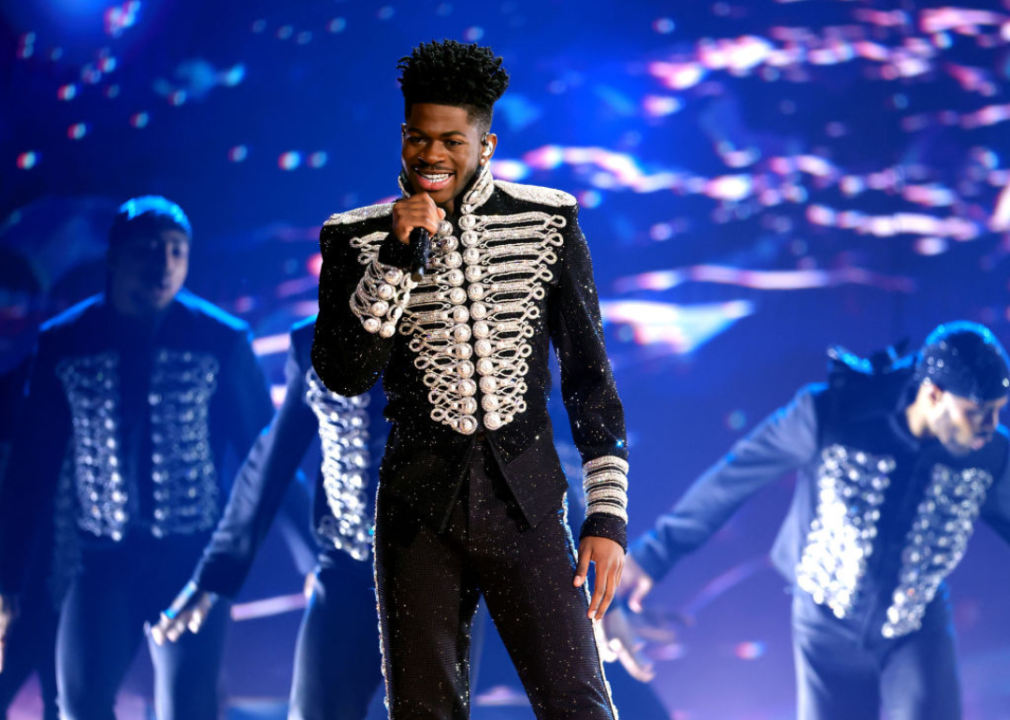50 great albums by queer artists of color
Published 9:10 pm Wednesday, June 8, 2022
Rich Fury // Getty Images
50 great albums by queer artists of color
Mainstream music is often a good indicator of the cultural zeitgeist of the era in which it was released, and the trajectory of queer musicians of color in music history tells a story of the growing acceptance and achievement of marginalized artists. Queer artists of color experience systemic racism and bigotry, whether it be through studios or consumers. Civil rights and gay rights movements have pushed back against these injustices to encourage change, and several marginalized artists saw themselves at the forefront of these movements.
It was also common for the music industry to exploit the work and culture of artists of color until the industry began recognizing and compensating them properly. And in more recent years, queer musicians have been openly expressing their queerness through their art, with many of them finding mainstream success. Recent examples like pop star and rapper Lil Nas X, who came out as gay at the height of the success of his record-breaking song “Old Town Road,” builds on the work of previous queer artists of color while showing the continuing challenges faced by these artists. Despite any societal and historical opposition, these artists have broken the mold and delivered music that remains influential and beloved to this day.
Stacker dug into music history and chose 50 great albums by queer artists of color. These albums range from blues to rock to rap and span time from the 1940s to the present. Read on to see what to add to your next playlists.
You may also like: Most-nominated artists who have never won a Grammy
![]()
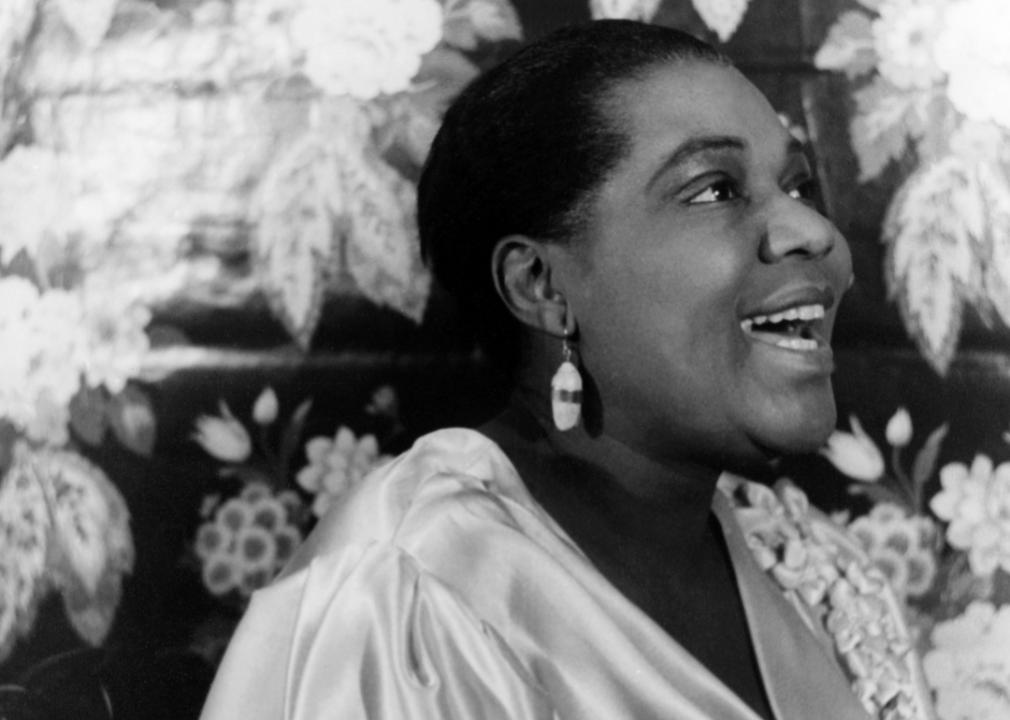
Everett Collection // Shutterstock
Bessie Smith: ‘Empress of the Blues’ (1940)
One of the earliest and most influential blues singers was Bessie Smith, who started off performing in the streets and eventually became part of a troupe that included famed singer Ma Rainey. Smith found success as a solo artist, and her lyrics emphasized independence and freedom of expression from women. Despite what some studios deemed to be a “rough voice,” Smith earned the moniker of the “Empress of the Blues,” which became the name of a compilation album that was released three years after her untimely death at 43 in a car crash.
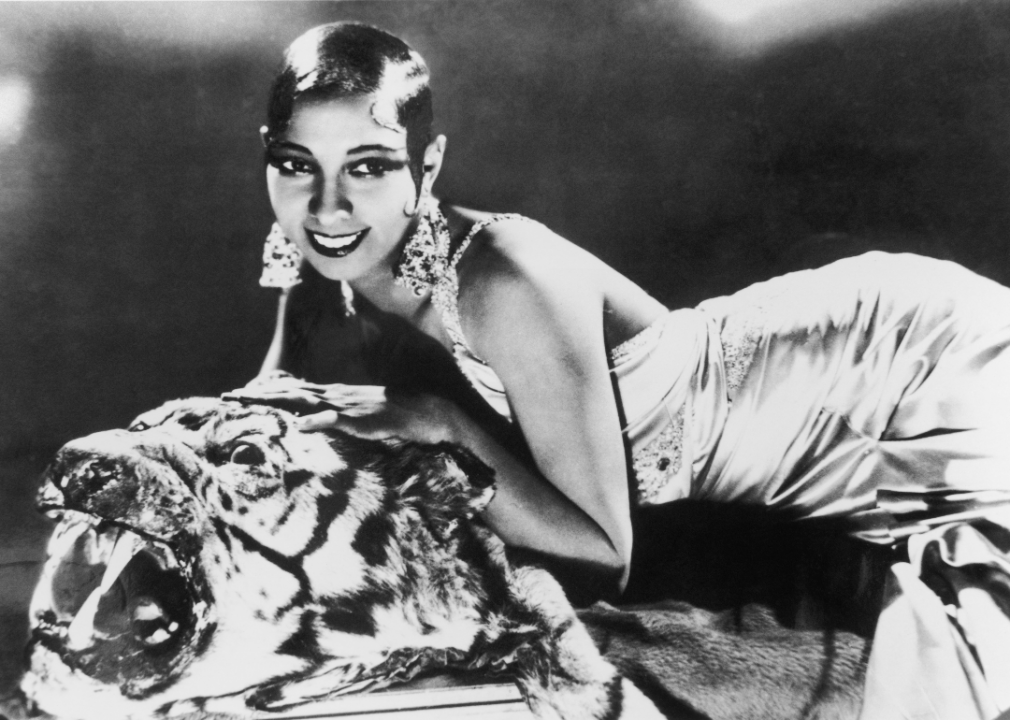
Hulton Archive // Getty Images
Josephine Baker: ‘Chansons Américaines’ (1951)
Entertainer Josephine Baker wore many hats—singer, dancer, civil rights activist, and even a member of the French Resistance during World War II. As an eccentric jazz singer, Baker became a hit in France, but after her participation in World War II, her work and subject matter became more serious, and she adamantly refused to perform in front of segregated audiences. Her album “Chansons Américaines” was composed of French-language versions of American songs; by then, Baker had since long renounced her American citizenship to become a French citizen.
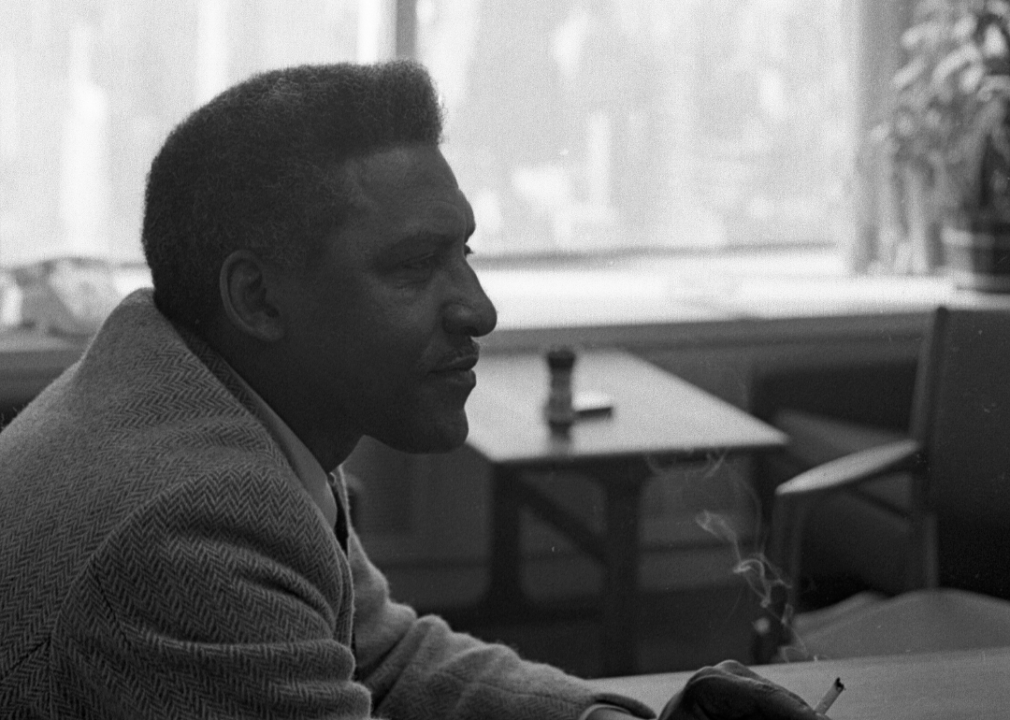
Robert Elfstrom/Villon Films // Getty Images
Bayard Rustin: ‘Bayard Rustin Sings a Program of Spirituals’ (1952)
As a civil rights leader, Bayard Rustin not only advocated for nonviolence and equality but also for gay rights. Rustin isn’t necessarily known as a musician, but he did record “Bayard Rustin Sings a Program of Spirituals,” which hears him performing a number of spirituals a cappella. In 2013, long after his death in 1987, then-President Barack Obama posthumously awarded Rustin with the Presidential Medal of Freedom.
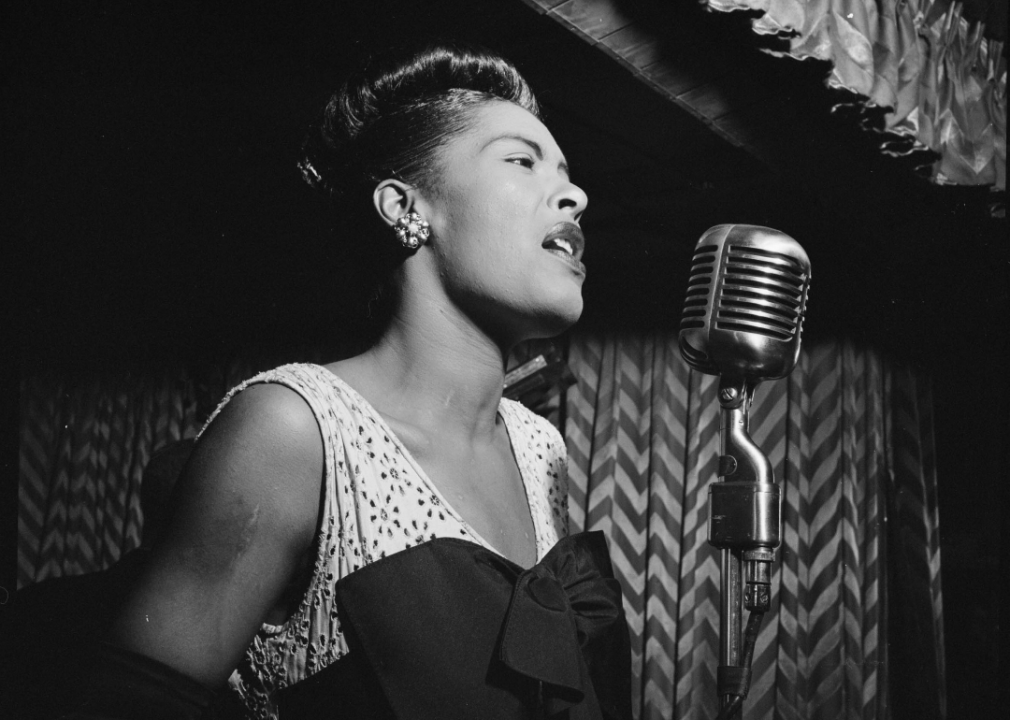
William Gottlieb // Getty Images
Billie Holiday: ‘Lady Sings the Blues’ (1956)
Jazz singer Billie Holiday’s career began with her singing in Harlem nightclubs before she broke through with several hits in the 1930s and 1940s. Despite her success, her use of drugs and alcohol had negatively impacted her voice, and it showed in her later albums, including “Lady Sings the Blues.” Regardless, the 1956 record was still highly praised and shared its release day with her autobiography of the same name.
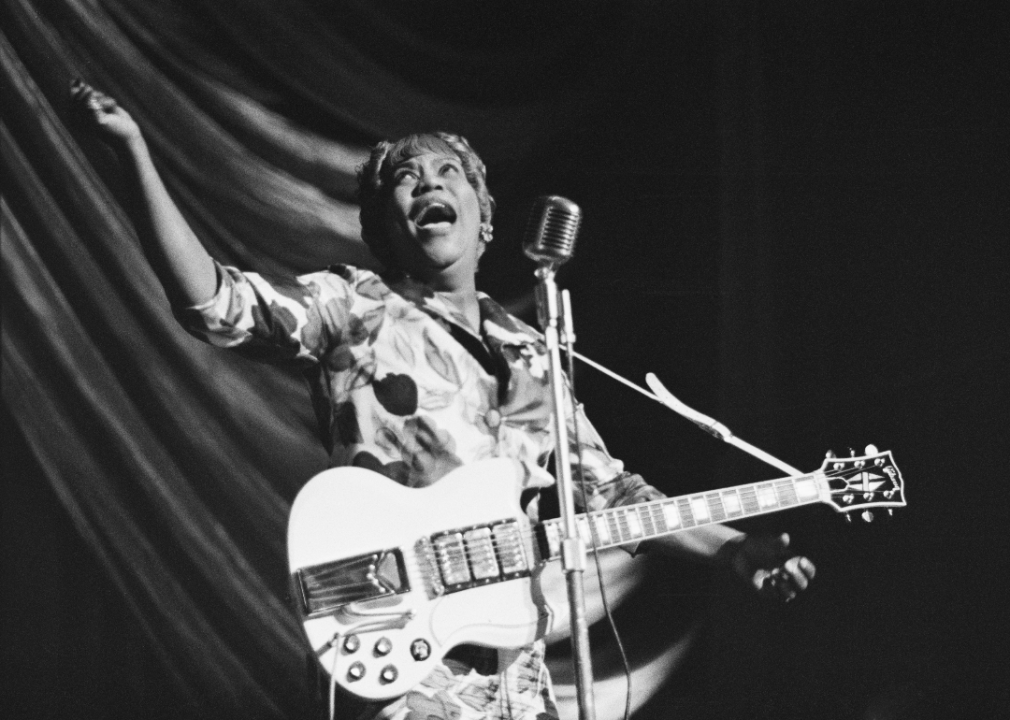
Tony Evans/Timelapse Library Ltd. // Getty Images
Sister Rosetta Tharpe: ‘Gospel Train’ (1956)
A significant and early example of a Black gospel record was “Gospel Train” by Sister Rosetta Tharpe, who combined spiritual and worship music with a rock ’n’ roll sound. “Gospel Train” carried a distinct R&B style, acting as a precursor to much of the rock ’n’ roll music that would come in the 1960s. Tharpe’s work ended up influencing some of the most famous rock musicians still remembered today, such as Chuck Berry and Little Richard.
You may also like: Most successful musical artists of all time
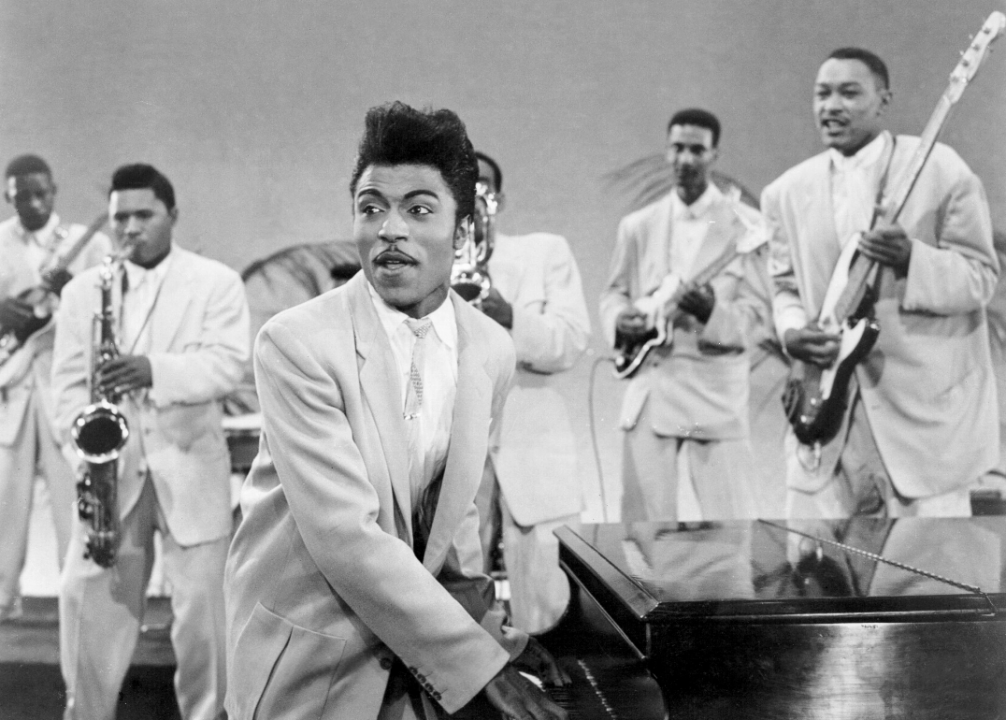
Michael Ochs Archives // Getty Images
Little Richard: ‘Here’s Little Richard’ (1957)
Having performed for several decades throughout his lifetime, Little Richard has had a lasting impact on musicians and the music industry entirely. His first album, “Here’s Little Richard,” came after the release of several hit singles that included the raunchy “Tutti Frutti” and “Long Tall Sally.” Little Richard’s music crossed racial barriers and came during a time when audiences began to integrate, and he would keep performing at shows until the 2010s before his death in 2020.
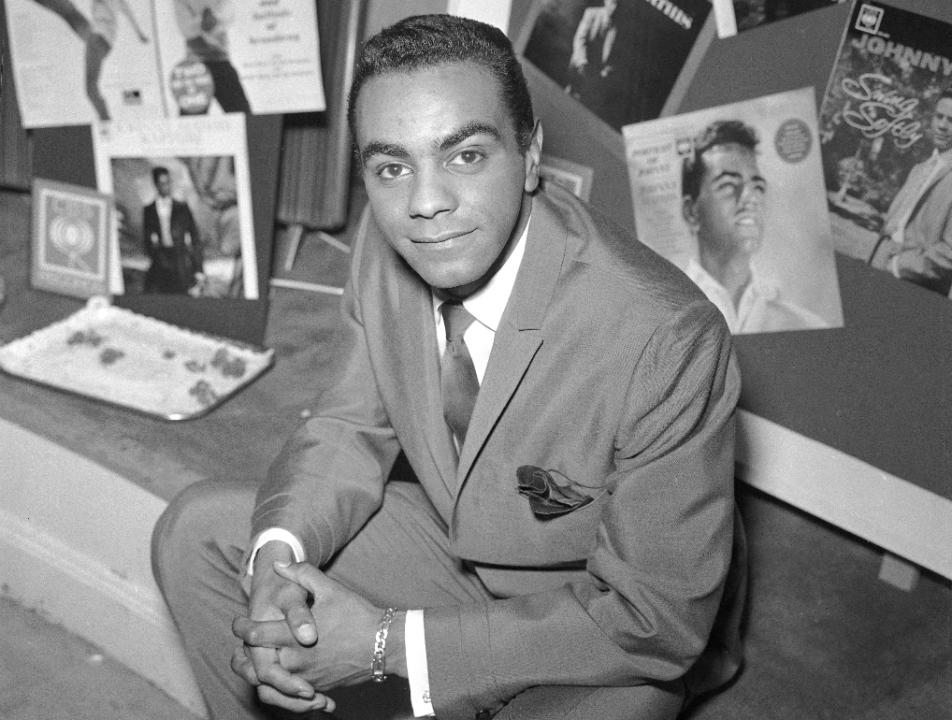
V&A Images // Getty Images
Johnny Mathis: ‘Open Fire, Two Guitars’ (1959)
Inspired by artists like Nat King Cole and Bing Crosby, the work of Johnny Mathis has spanned a number of different genres, including pop, soul, and blues. Mathis skyrocketed in popularity after a 1957 appearance on “The Ed Sullivan Show,” and his album “Open Fire, Two Guitars” two years later would impress listeners with its production quality. The pop album contained covers as well as a couple of new pop songs.
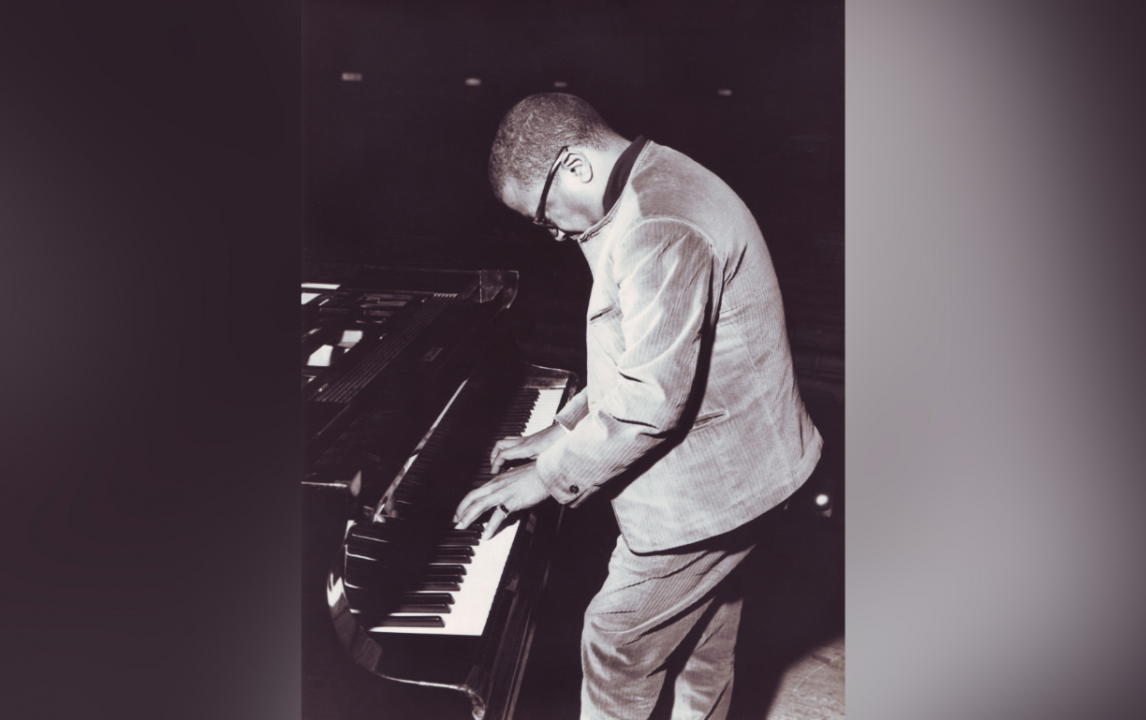
Bill Wagg // Getty Images
Billy Strayhorn: ‘The Peaceful Side’ (1963)
While Billy Strayhorn was primarily associated with musician Duke Ellington, Strayhorn was also a recorded artist of his own merit. Strayhorn received recognition for composing songs such as “Take the ‘A’ Train,” but in some cases, credit for many songs of Ellington’s band went to Ellington alone. Strayhorn’s album “The Peaceful Side” would provide pure access to his piano compositions.
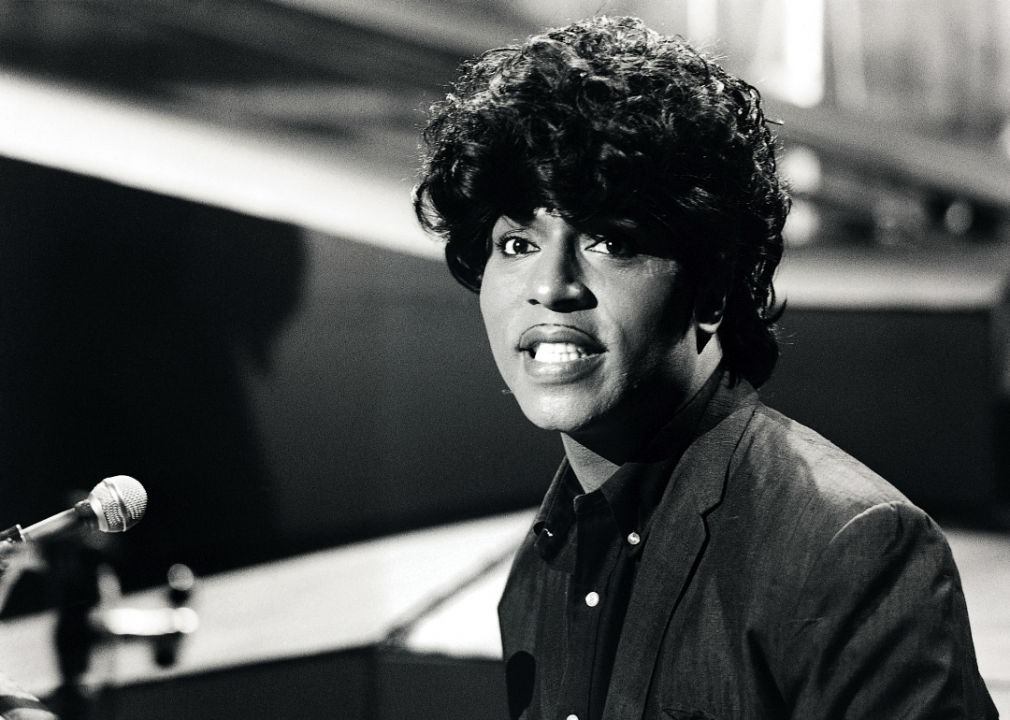
David Redfern // Getty Images
Little Richard: ‘Little Richard Is Back (And There’s a Whole Lotta Shakin’ Goin’ On!)’ (1964)
Little Richard had an interesting trajectory as an artist, initially known as a rock ’n’ roll artist before transitioning into gospel music. With the explicitly titled “Little Richard Is Back (And There’s a Whole Lotta Shakin’ Goin’ On!’),” the artist would return to the rock genre in an album that included a cover of “Hound Dog.” Marketed as a comeback album, the release and those that subsequently followed were overshadowed by other artists like the Beatles and James Brown.
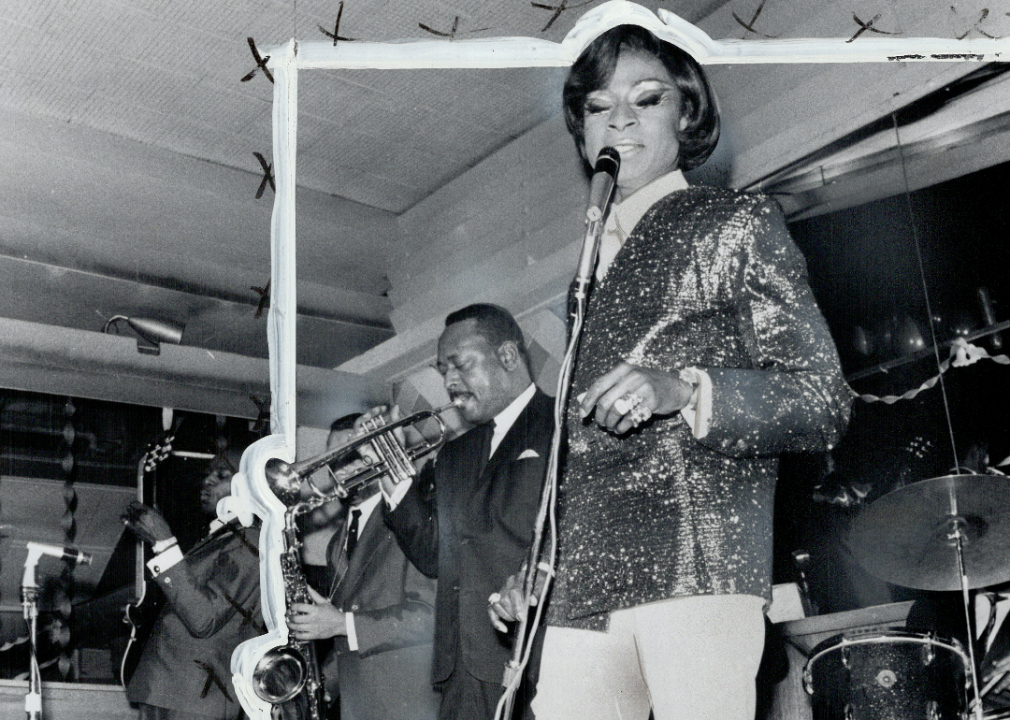
Jeff Goode // Getty Images
Jackie Shane: ‘Jackie Shane Live’ (1967)
Born in Nashville, Tennessee, and later a hit in Canada, Jackie Shane was a trailblazer as a transgender performer. Often mischaracterized as a drag queen or a cross-dresser, Shane had difficulties expressing her gender identity throughout her career. “Jackie Shane Live,” a successful live album recorded at Toronto’s Sapphire Tavern, was reissued in 2015.
You may also like: Boy bands to top the Billboard charts since 1980
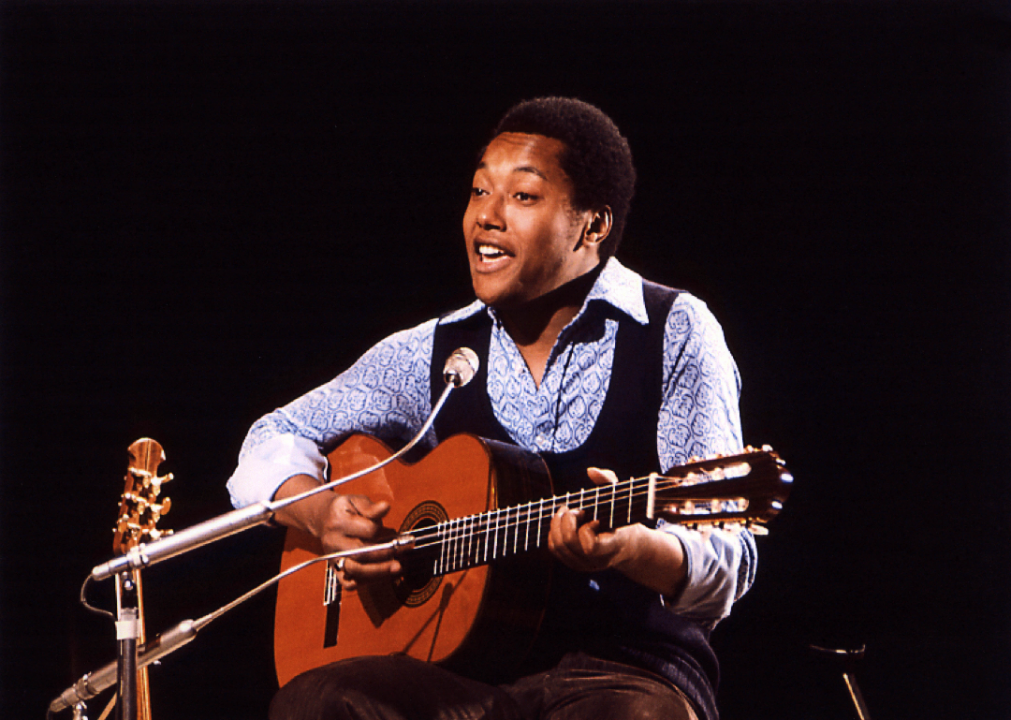
Ron Howard // Getty Images
Labi Siffre: ‘Remember My Song’ (1975)
Poet and musician Labi Siffre began playing jazz guitar at a young age, and by the 1970s, he had recorded and released several albums. These albums include the self-titled “Labi Siffre,” “The Singer and the Song,” and “Crying Laughing Loving Lying,” with a significant hit single being “It Must Be Love.” “Remember My Song” is Siffre’s fifth album, and it offered a mix of funky and “folksy” music that would even be sampled by modern hip-hop artists like Eminem.
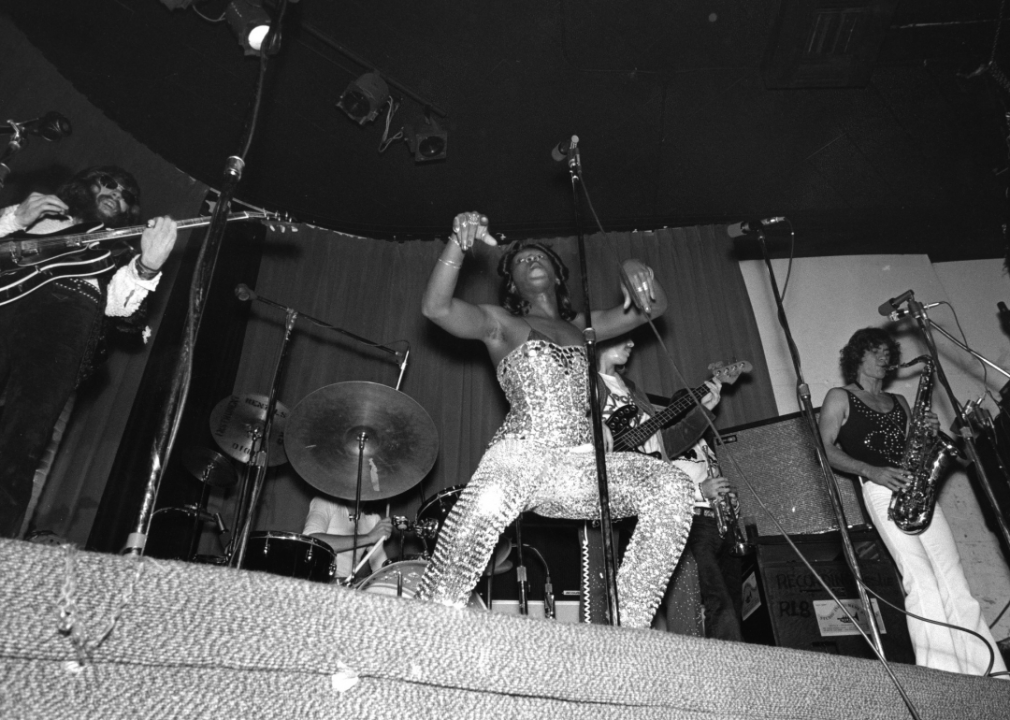
Richard Creamer/Michael Ochs Archives // Getty Images
Sylvester: ‘Step II’ (1978)
Disco artist Sylvester was born into a Pentecostal Christian family, but as a gay man, he was met with disapproval from his congregation; he would later find a home among Black transgender and queer women. Influenced by singers like Billie Holiday and Josephine Baker, Sylvester developed his falsetto singing voice and his flamboyant stage persona while performing with the Cockettes. During his solo career, one of his most acclaimed albums was “Step II,” his second album, and it included hits such as “You Make Me Feel (Mighty Real)” and “Dance (Disco Heat).”
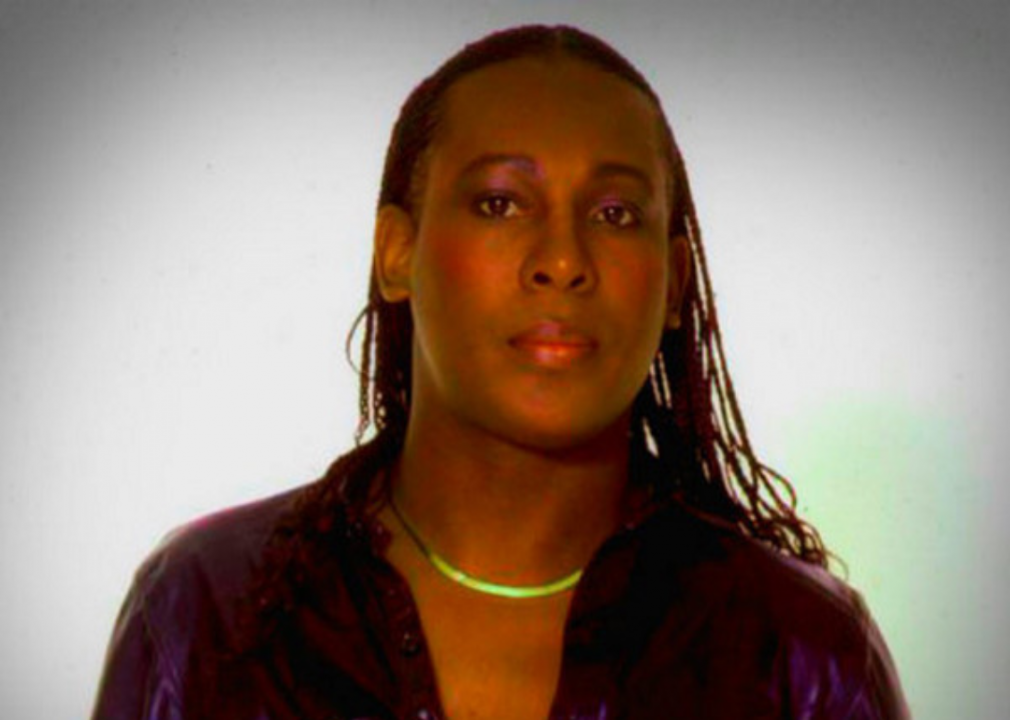
Fantasy // Discogs
Sylvester: ‘All I Need’ (1982)
Singer-songwriter Sylvester openly expressed his queerness throughout his career, often performing for gay communities and at gay events and parades. His album “All I Need” was specifically catered for gay clubs, containing new wave songs meant to be danced to, one hit song being “Do Ya Want to Funk.”
You may also like: Top 100 country songs of all time
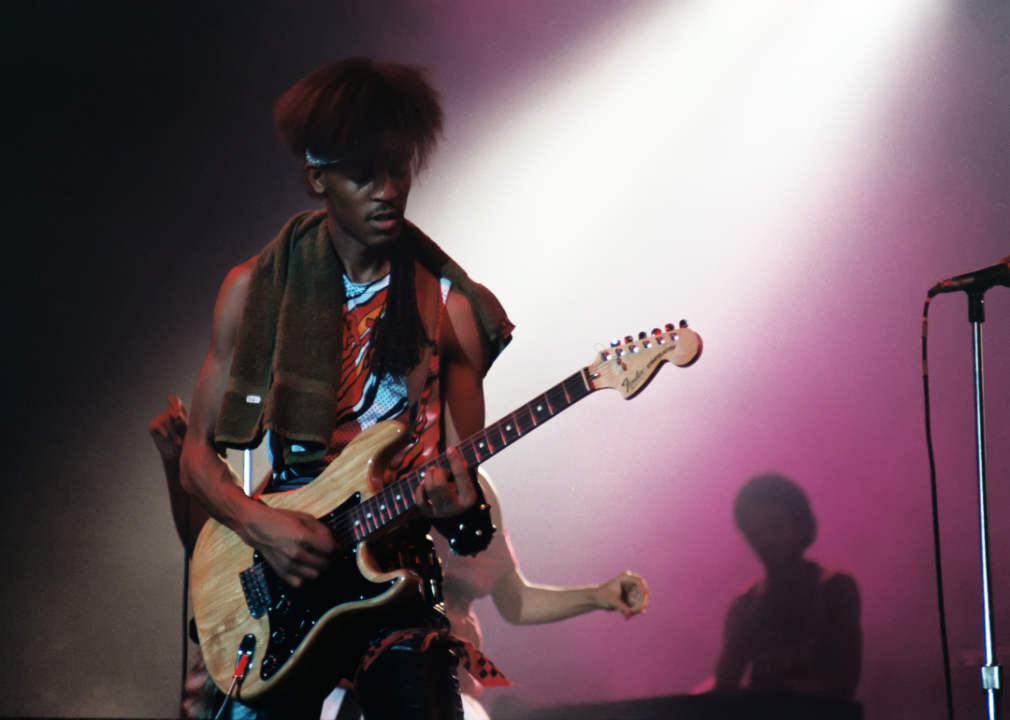
Solomon NJie // Getty Images
Jermaine Stewart: ‘The Word Is Out’ (1984)
Beginning his career as a background vocalist and a dancer for the show “Soul Train,” Jermaine Stewart would eventually land a recording contract after a successful demo tape. “The Word Is Out” was Stewart’s debut album, with the song of the same name becoming the album’s biggest single. Stewart would later have other hits like “We Don’t Have to Take Our Clothes Off,” but he succumbed to AIDS-related liver cancer in 1997.
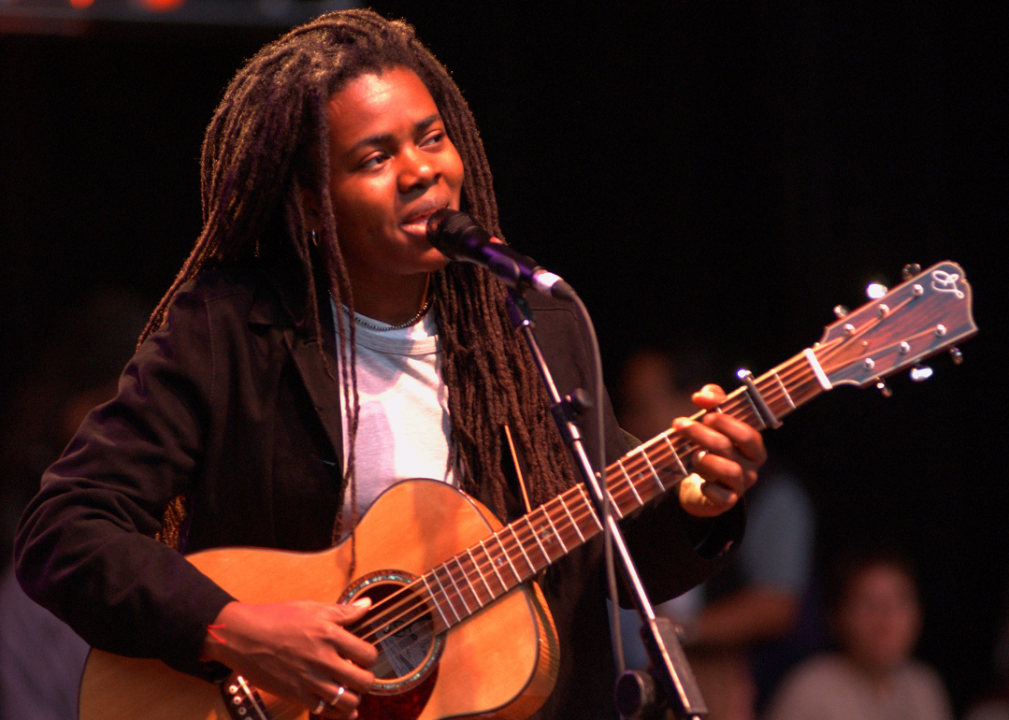
Tim Mosenfelder // Getty Images
Tracy Chapman: ‘Tracy Chapman’ (1988)
Thanks to a well-received demo tape of the song “Talkin’ ’bout a Revolution,” singer-songwriter Tracy Chapman received an opportunity to record her first album. Upon its release, the acoustic-focused album succeeded in the charts and won praise from critics for the album’s musical simplicity and lyrical depth, with “Fast Car” being the most successful single off the record.
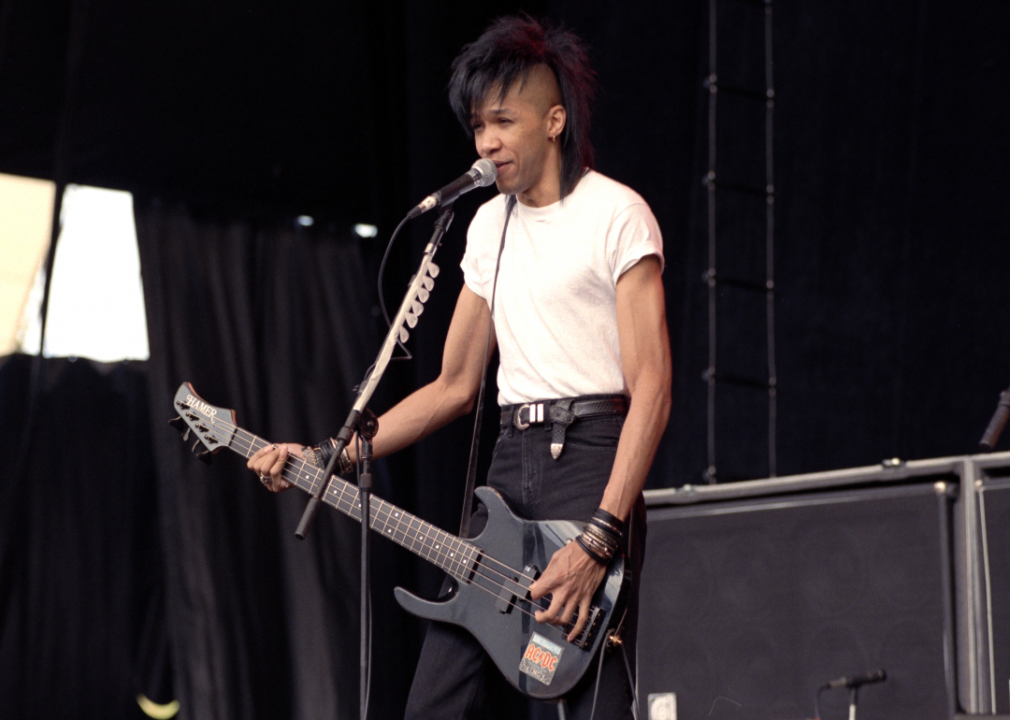
Tim Mosenfelder / Getty Images
King’s X: ‘Gretchen Goes to Nebraska’ (1989)
The “progressive metal” genre found some success in the late 1980s and early ’90s thanks to King’s X, a band that often mixes in and references a number of genres. The eccentrically named “Gretchen Goes to Nebraska” combines progressive metal and hard rock sounds and won critical praise for its variety. Bassist and vocalist Doug Pinnick’s gay identity combats negativity against queers in the metal and Christian communities.
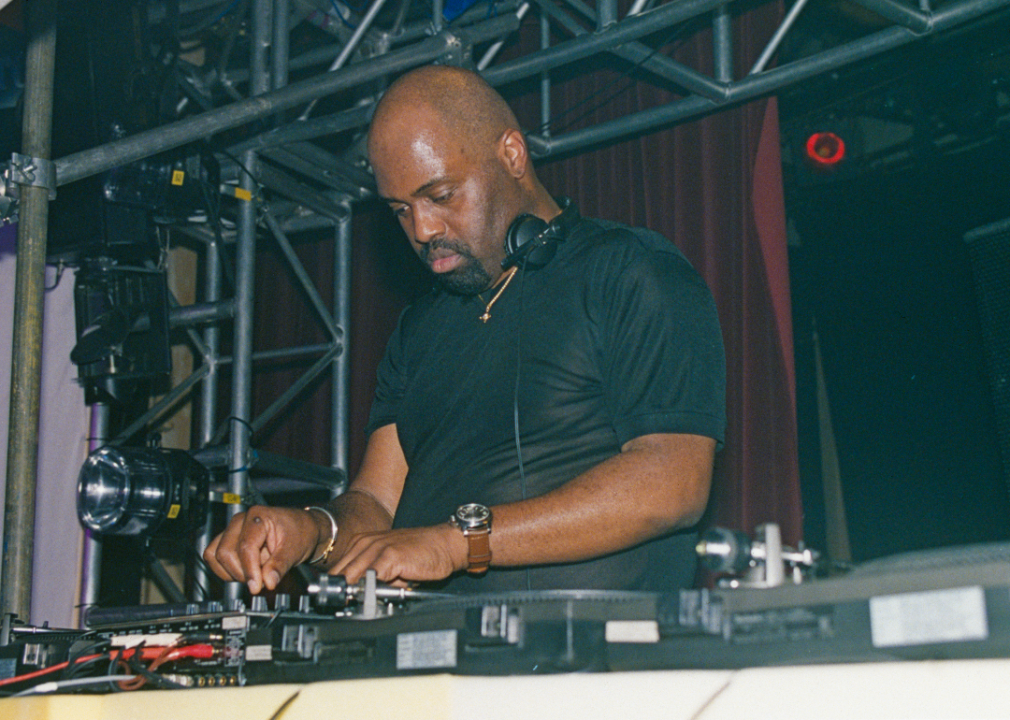
Sal Idriss // Getty Images
Frankie Knuckles: ‘Beyond the Mix’ (1991)
Known as the “Godfather of House Music,” Frankie Knuckles frequented discos in the 1970s and began DJing for clubs, including the Warehouse, where Black gay men often frequented. Knuckles developed his own original sound, combining disco, soul, and rock into what would eventually be called house music. His first album, “Beyond the Mix,” contained “The Whistle Song,” which became one of his first #1 hits.
You may also like: 50 ways music has changed in the last 50 years
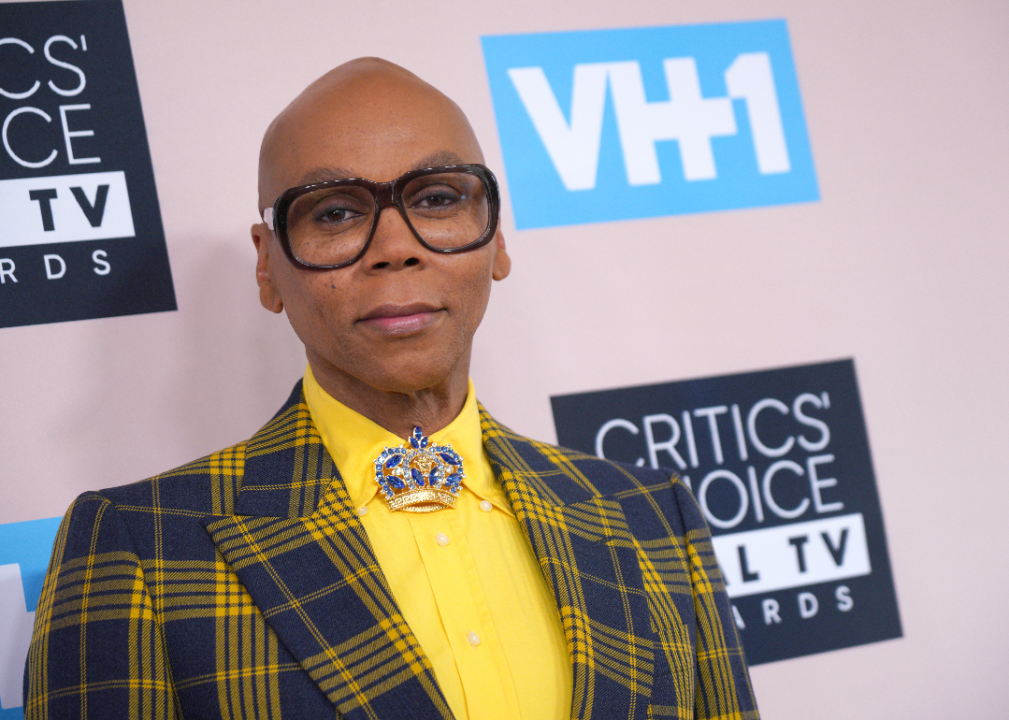
JC Olivera // Getty Images
RuPaul: ‘Supermodel of the World’ (1993)
Quite possibly the world’s most famous drag queen is RuPaul, best known today for his reality competition show, “RuPaul’s Drag Race.” However, much earlier in his career, RuPaul found recognition and visibility with “Supermodel of the World,” an album full of house music and RuPaul’s vocals. The songs “Supermodel (You Better Work)” and “Back to My Roots” were the biggest successes from the album.
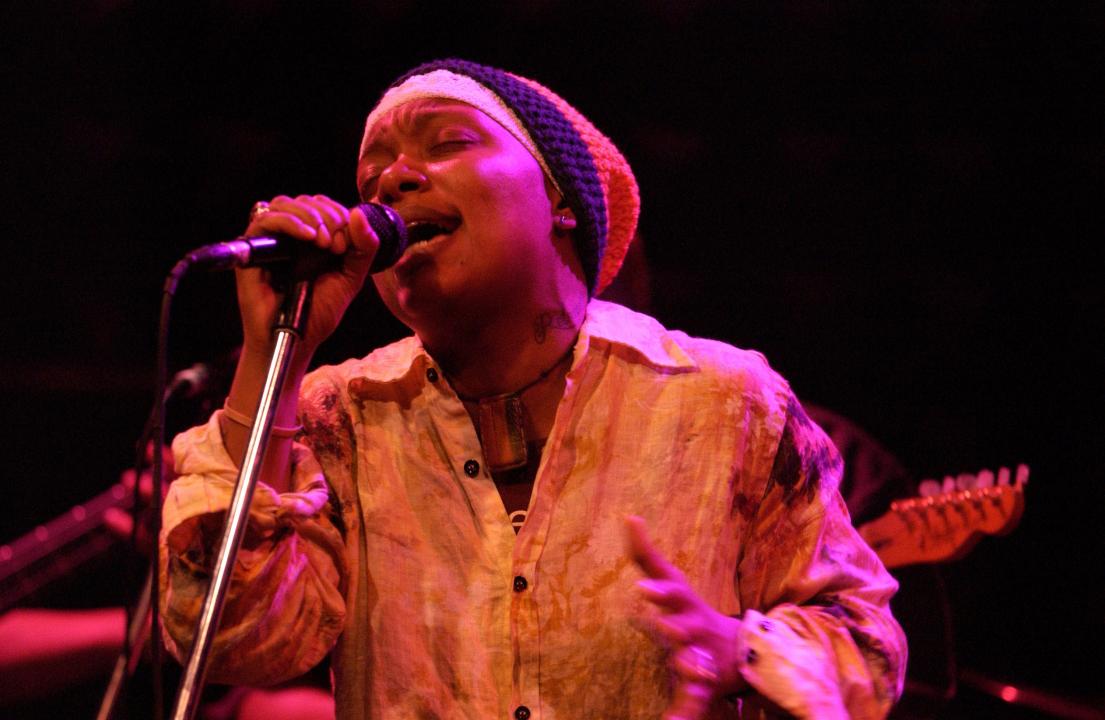
Theo Wargo // Getty Images
Meshell Ndegeocello: ‘Plantation Lullabies’ (1993)
Funk singer-songwriter and activist Meshell Ndegeocello debuted with an album called “Plantation Lullabies,” a neo-soul record that explored gender, race, and sexuality from an Afrocentric perspective. The acclaimed album would also help establish Ndegeocello’s androgynous persona while performing. The album was considered strong and unapologetic in tackling issues such as racism and sexism.
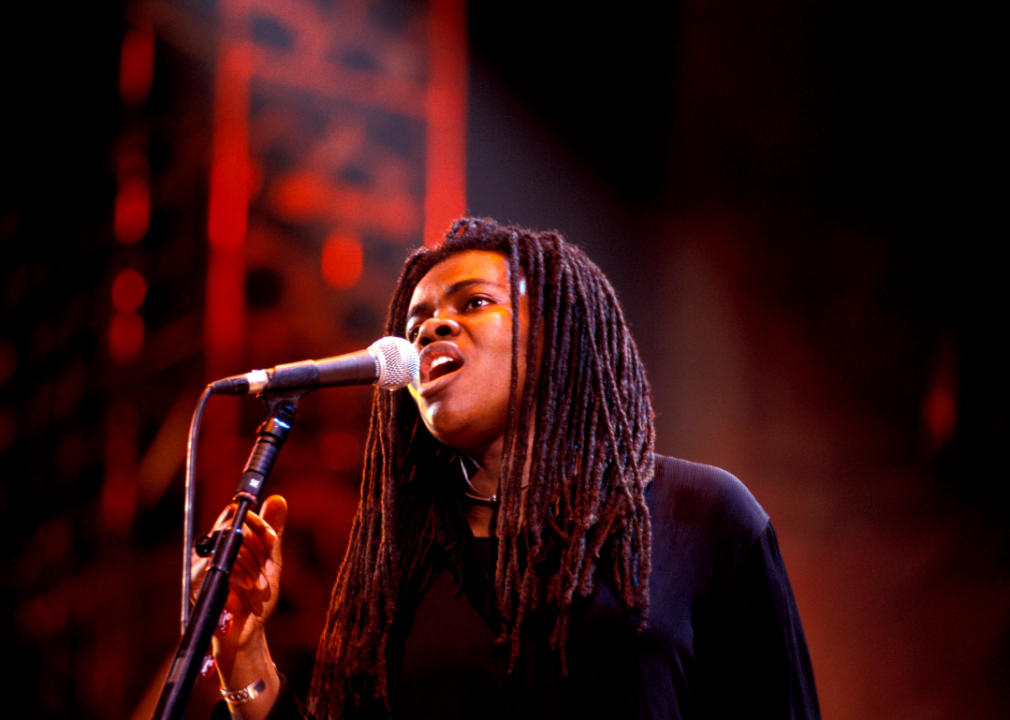
Diana Scrimgeour // Getty Images
Tracy Chapman: ‘New Beginning’ (1995)
The aptly named “New Beginning” is Tracy Chapman’s fourth studio album, and it marked a moment of significant success for the musician. Containing Chapman’s signature acoustic style, “New Beginning” also featured some more upbeat songs, a blues track, and background vocals. Adding to the album’s commercial success, Chapman’s song “Give Me One Reason” took home the Best Rock Song Grammy in 1997.
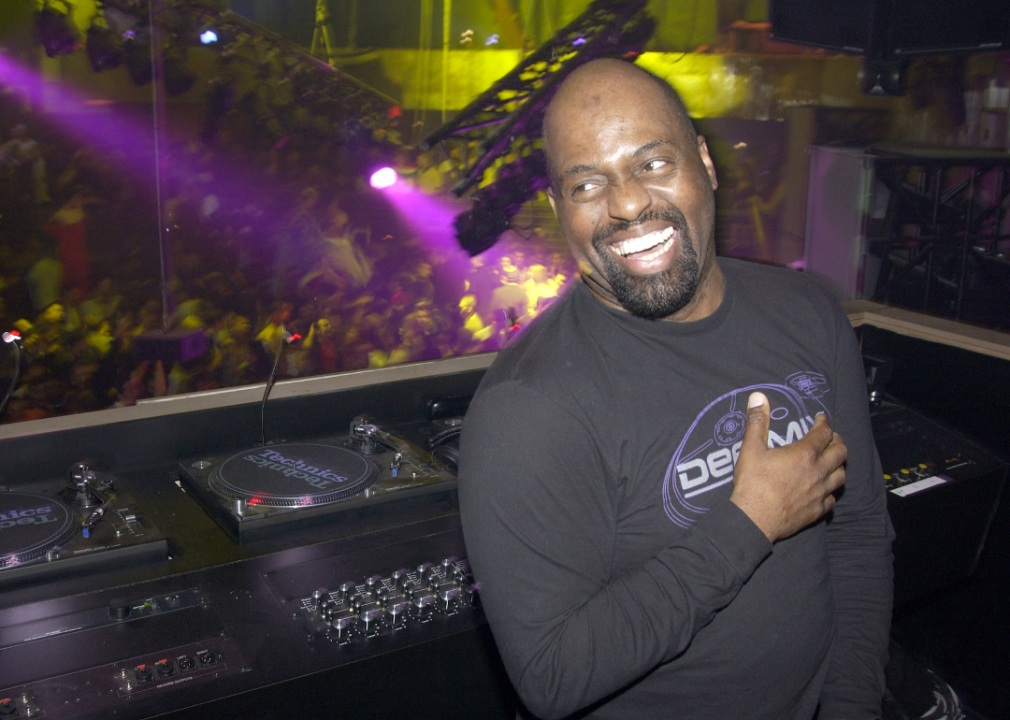
J. Countess // Getty Images
Frankie Knuckles: ‘Welcome to the Real World’ (1995)
After the release of his first album, “Beyond the Mix,” DJ Frankie Knuckles continued working as a remixer until releasing a second album under Virgin Records. “Welcome to the Real World” was a collaboration with Adeva and contained a song called “Too Many Fish,” which debuted atop the U.S. dance charts.
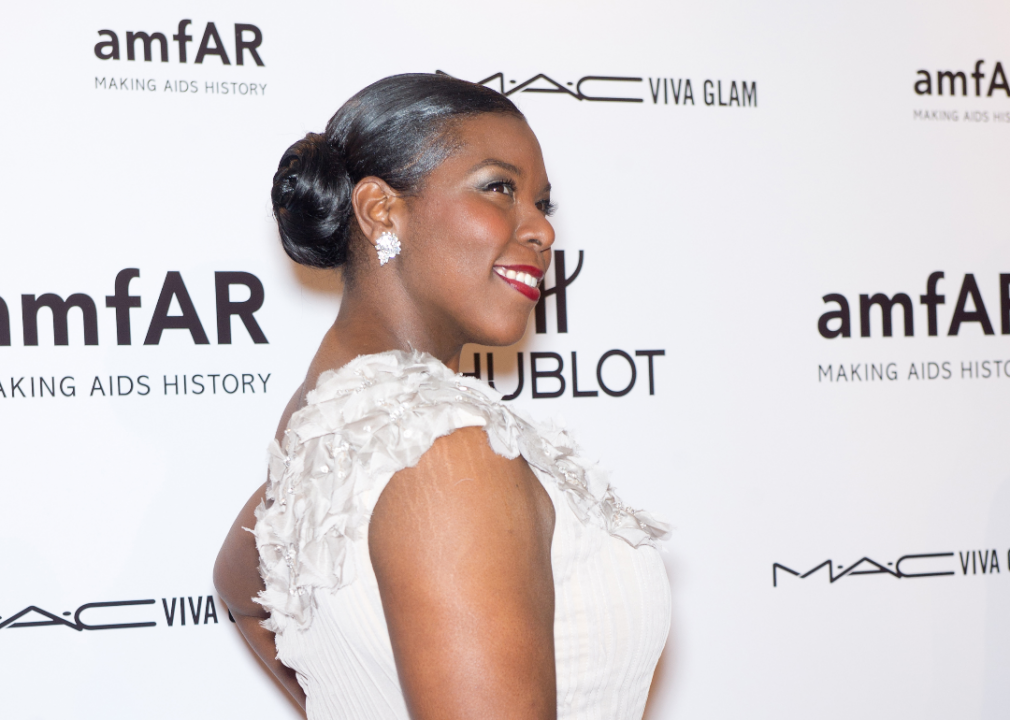
Gilbert Carrasquillo // Getty Images
Meshell Ndegeocello: ‘Bitter’ (1999)
The third album from artist and activist Meshell Ndegeocello very much conveyed the album’s title, “Bitter,” essentially serving as a release of negative emotions stemming from an unhealthy relationship. What results is an album full of slow and moody songs that some listeners had difficulty digesting—regardless, the quality of Ndegeocello’s music still received high marks.
You may also like: The best streaming services in 2021
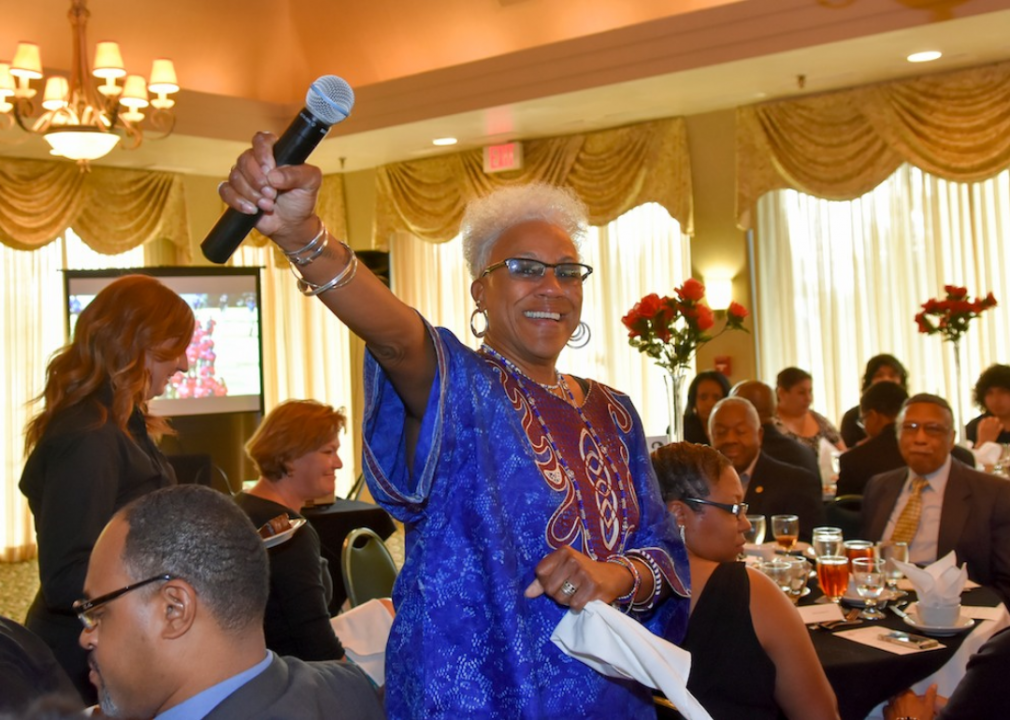
20160609_GTA End Year Dinner // Wikimedia Commons
Gaye Adegbalola: ‘Bittersweet Blues’ (1999)
Forming one-third of the group Saffire—The Uppity Blues Women, Gaye Adegbalola also released several blues albums on her own. After several years of working in the blues music industry as a teacher and music reporter, Adegbalola released “Bittersweet Blues,” an album of covers of songs from artists like Ma Rainey, Bessie Smith, and Nina Simone.
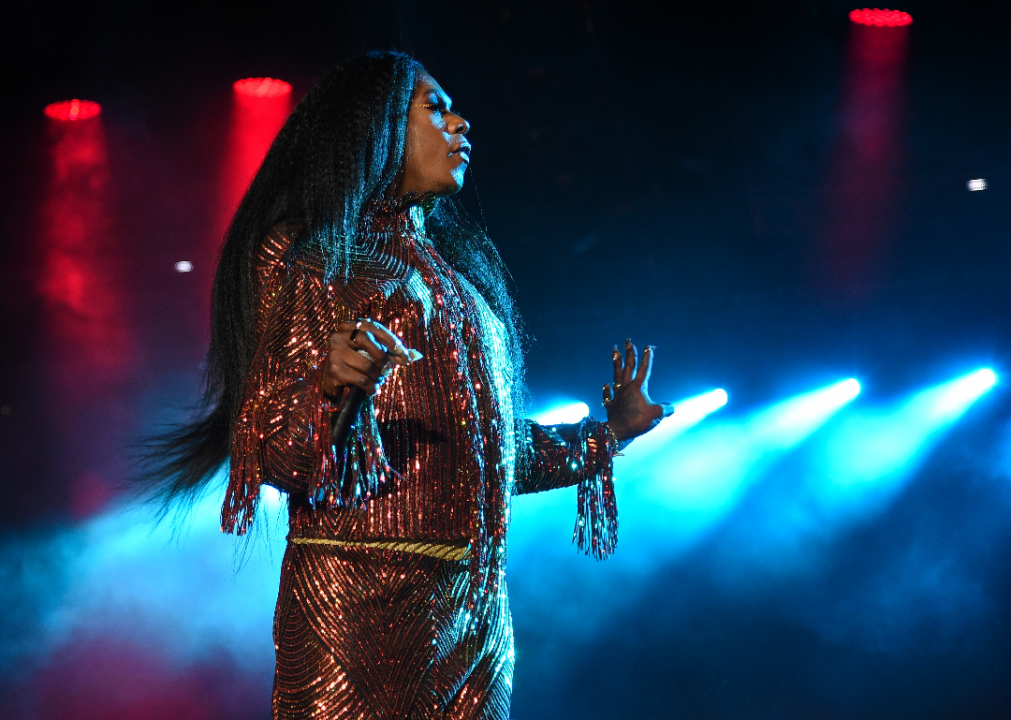
Erika Goldring // Getty Images
Big Freedia: ‘Queen Diva’ (2003)
Rapper Big Freedia usually self-identifies as a gay man while also using the personal pronouns she/her and proudly proclaiming herself the “queen of diva.” Fittingly, her first album, “Queen Diva,” came after she released a handful of singles and performed multiple shows in New Orleans. Big Freedia’s mainly known for being aggressive and sexual in her lyrics, and she remains active in the music scene today.
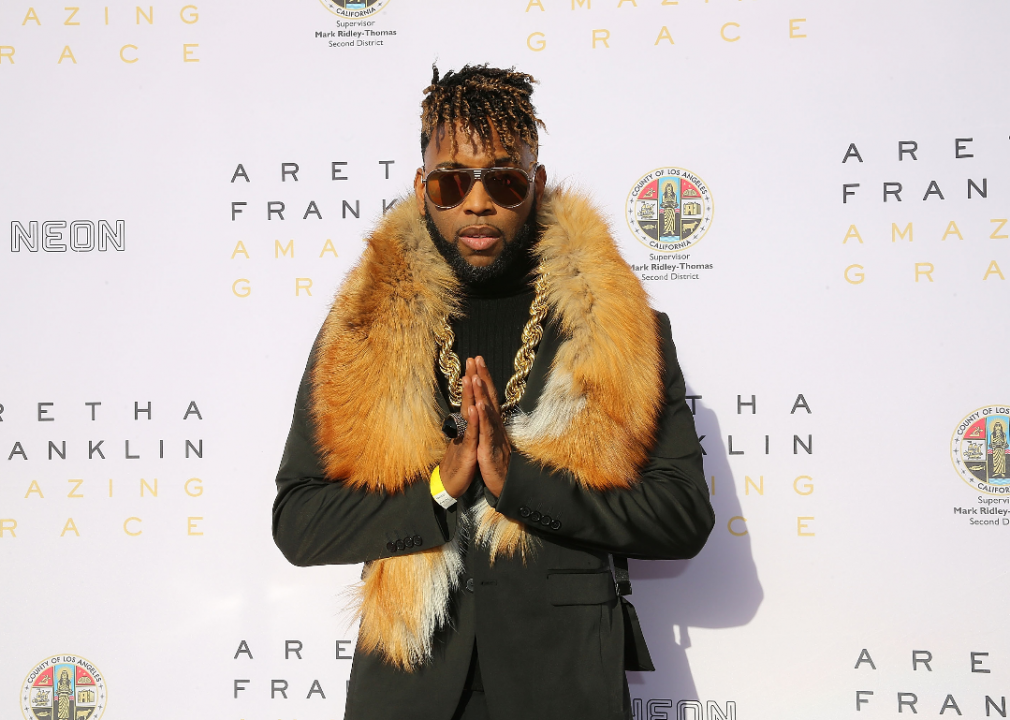
Rachel Murray // Getty Images
Tonéx: ‘Out the Box’ (2004)
Now known as B.Slade, Anthony Charles Williams II went by Tonéx during his career as a gospel singer, although he has covered a countless number of music genres across his several albums. “Out the Box” was during his time as Tonéx, capturing a live recording that had a crowd overcapacity. With 36 tracks, this two-disc set easily became a #1 hit on the Top Gospel Album Chart.
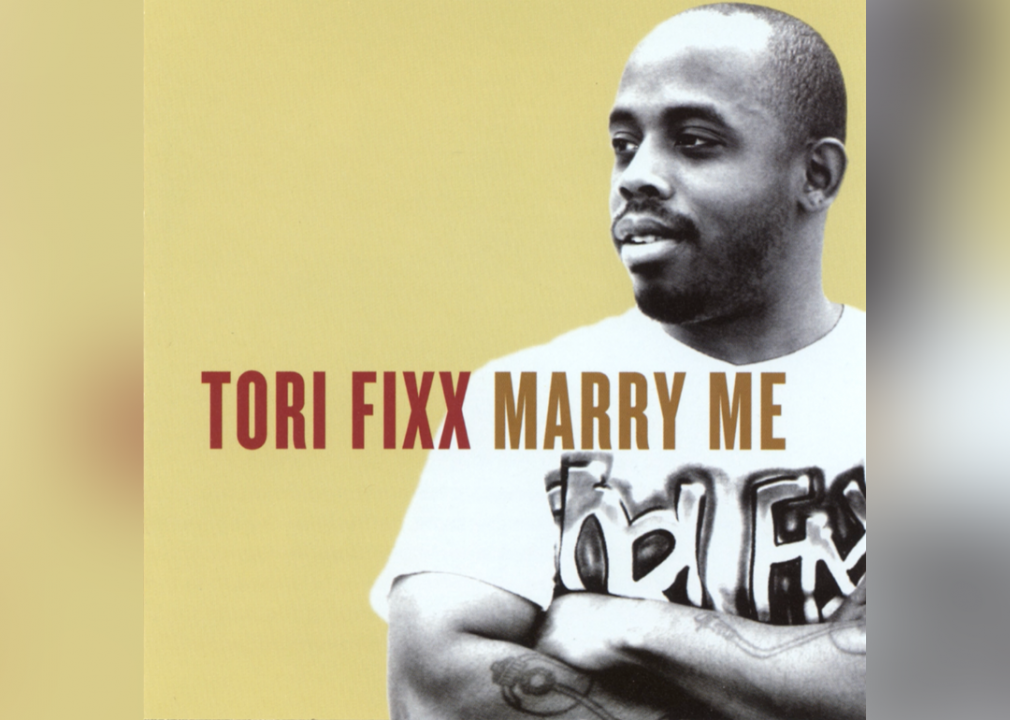
Larry Counce Jr.
Tori Fixx: ‘Marry Me’ (2005)
Hip-hop artist Tori Fixx is one of the first openly gay artists in his genre, and his album “Marry Me” was a very pointed reference to the struggle for gay marriage during a time when it was not legal in the entire country. Along with his own work, Tori Fixx has also produced albums for other queer artists, and he remains a gay rights activist and musician.
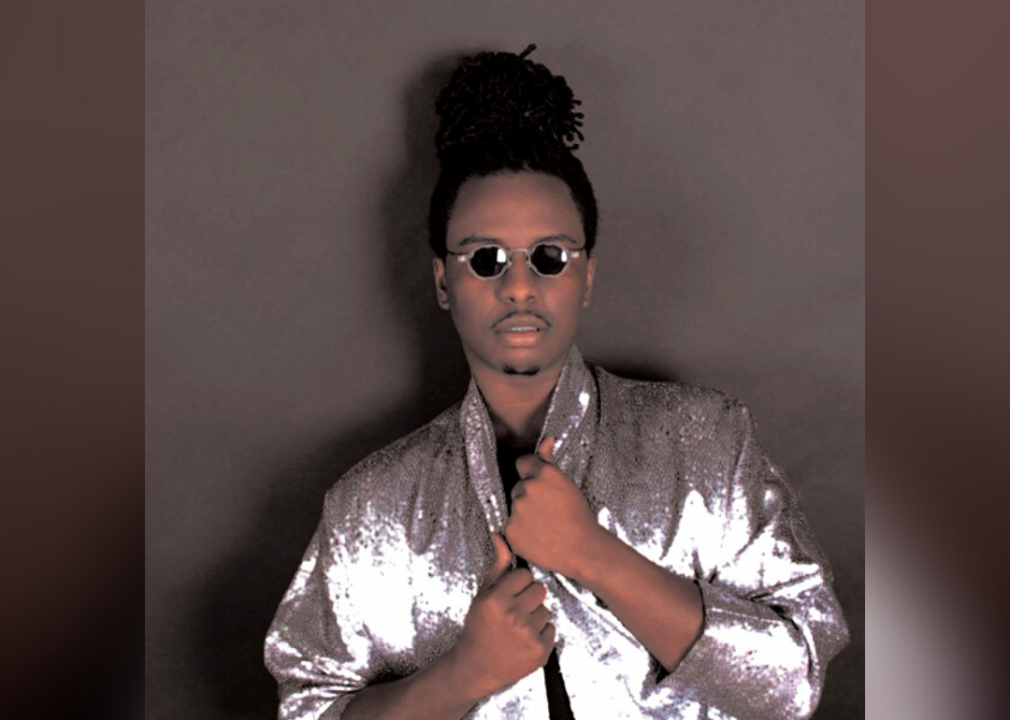
Hntrx & Cocktail O’Amore Records // Discogs
Shaun J. Wright: ‘Hercules and Love Affair’ (2008)
“Hercules and Love Affair” is a project led by DJ Andrew Butler and features a rotating lineup of house music and techno artists. One such artist is Shaun J. Wright, a male nonconforming artist who got his start in dance companies and the ballroom scene. After meeting Butler, Wright became a part of the project and its second album, “Blue Songs.”
You may also like: 100 best albums of the 21st century, according to critics
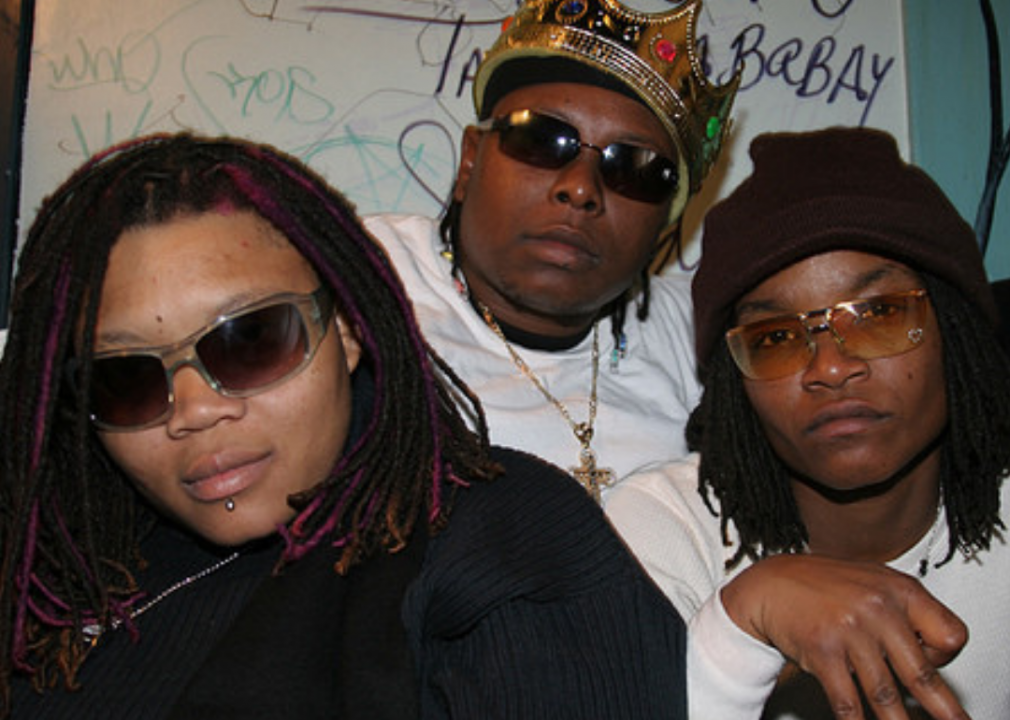
Domino // Discogs
Yo Majesty: ‘Futuristically Speaking … Never Be Afraid’ (2008)
Jwl B, Shunda K, and Shon B are the singers and rappers who form the group known as Yo Majesty—all three identify as lesbian and Christian. Even with the latter label, their work is known for being dirty and explicit, with their third album, “Futuristically Speaking … Never Be Afraid,” certainly having that characteristic. The sound is noticeably electro-funk and punk, a fitting combination for the lyrical content.
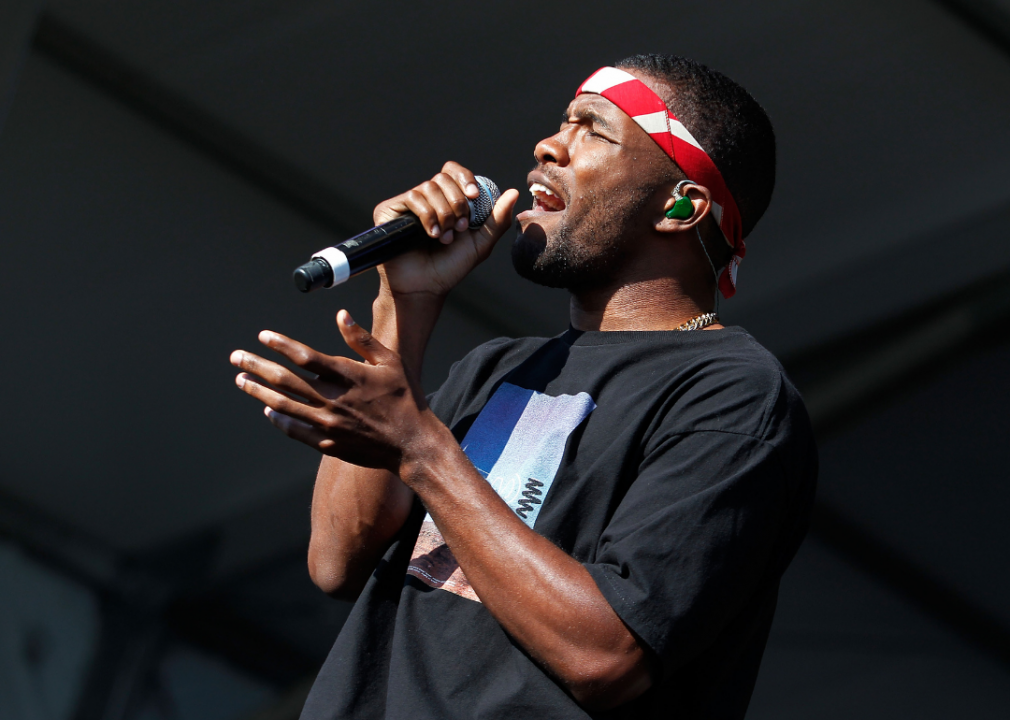
Tyler Kaufman // Getty Images
Frank Ocean: ‘Channel Orange’ (2012)
Popular R&B singer-songwriter Frank Ocean is one of the most acclaimed names in modern music, and his debut album, “Channel Orange,” was particularly innovative. Coming after a number of mixtapes, “Channel Orange” had an unorthodox musical style, combining soul, electro-funk, jazz, and psychedelic music to great success, according to critics and listeners. The album is thought to be one of the best albums of the 2010s—and even of all time.
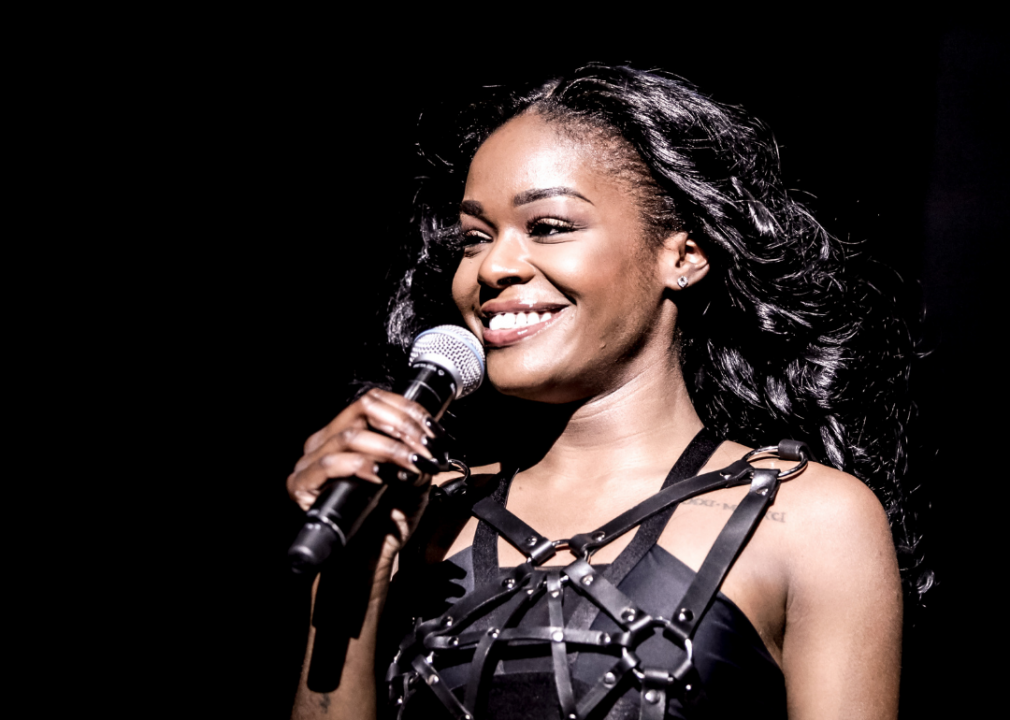
Christie Goodwin // Getty Images
Azealia Banks: ‘Broke with Expensive Taste’ (2014)
Beginning work on the album without being signed to a record label, rapper Azealia Banks crafted an album that combined a number of different musical genres, including house, punk, and R&B. Before the album’s release, Banks primarily shared her work through Myspace. In the present day, Banks has released several albums and mixtapes and even launched her own record label and online store.
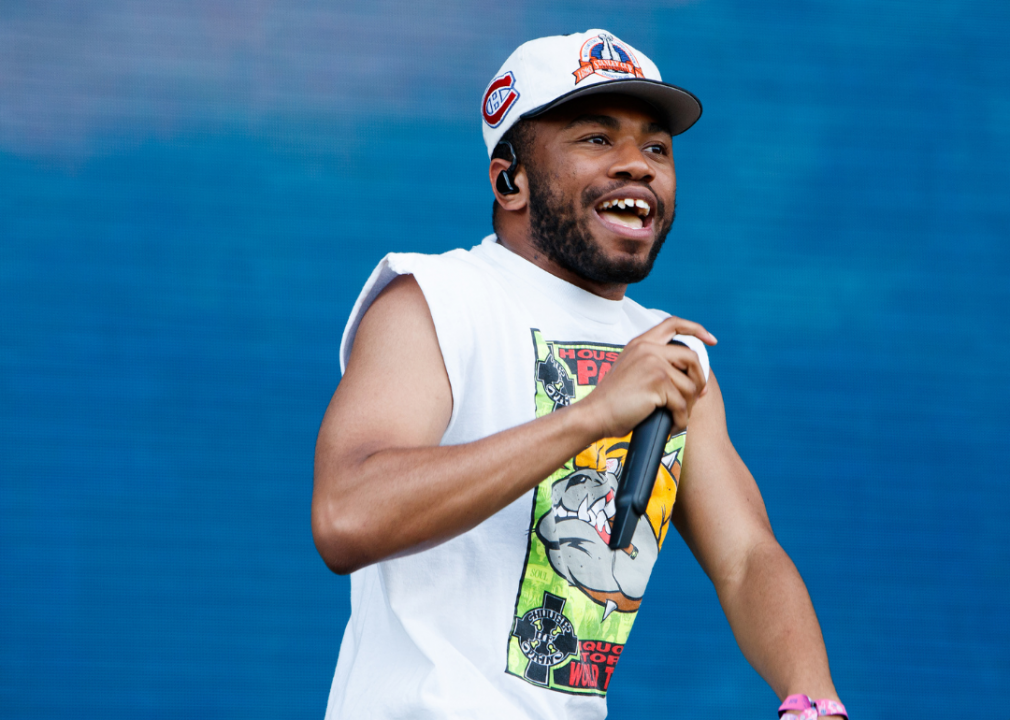
Burak Cingi // Getty Images
Kevin Abstract: ‘MTV1987’ (2014)
After releasing an EP, rapper and singer Kevin Abstract began work on “MTV1987,” his debut album that endeavored to combine pop culture and musical elements from the past and present to make a statement on today’s digital age. Abstract has since released several albums after the critically lauded “MTV1987,” and much of his work makes references to his sexuality as a gay man.
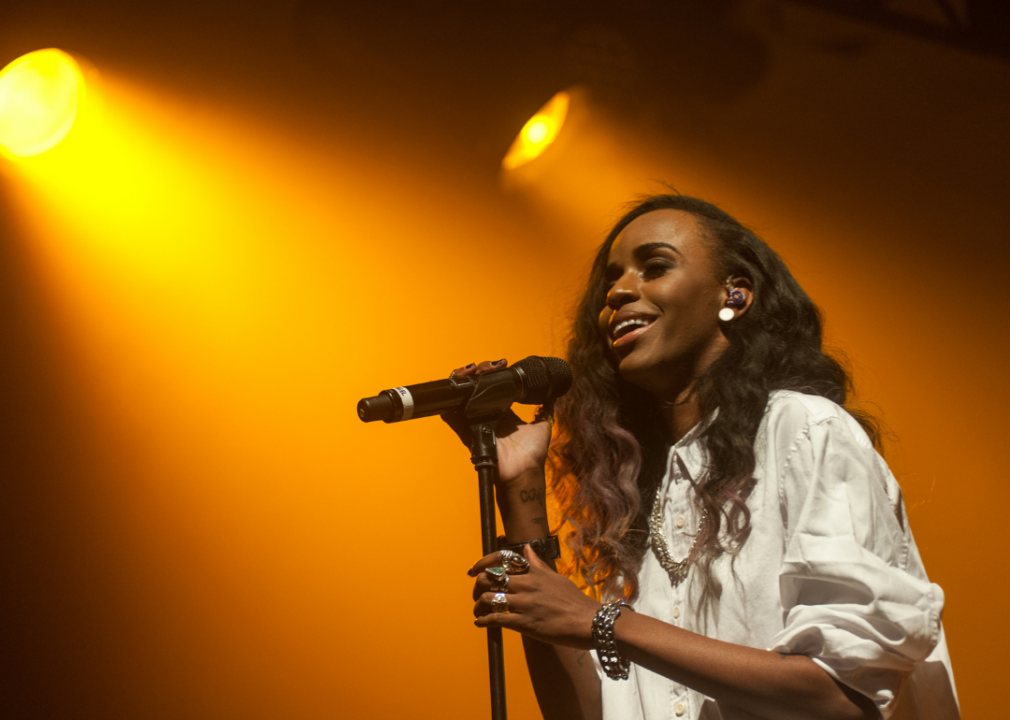
Robert Ricciuti // Getty Images
Angel Haze: ‘Back to the Woods’ (2015)
Identifying as pansexual and agender, rapper Angel Haze includes many of her deeply personal experiences in her work. Haze has released several mixtapes and a few albums including “Back to the Woods.” Her lyrics refer to homophobia, sexual assault, and racism, and she uses her music to try to reach out to struggling youth and push back against violence.
You may also like: 30 pop songs you may not know are covers
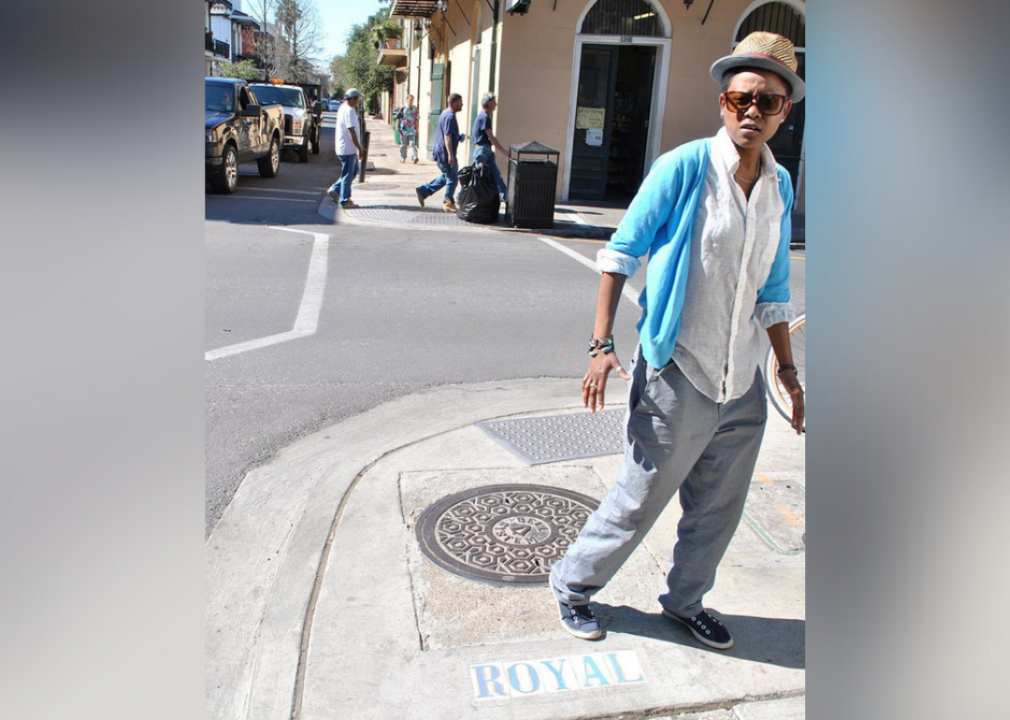
Churchkey Records // Discogs
Shirlette Ammons: ‘Language Barrier’ (2015)
Based in Durham, North Carolina, Shirlette Ammons is a musician and poet who primarily produces and performs hip-hop music. Her second album “Language Barrier” features a number of guest appearances from other artists, although it is still decidedly her album, as she forms the connective tissue to all of the individual songs, and the compositions are certainly her own.
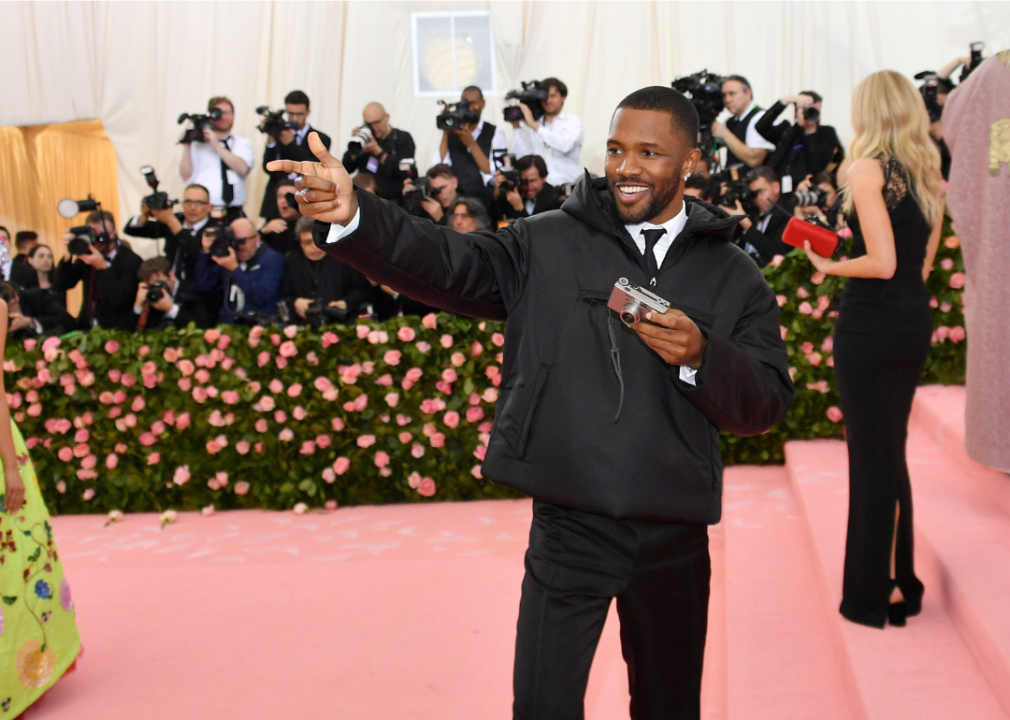
Dia Dipasupil // Getty Images
Frank Ocean: ‘Blonde’ (2016)
Fans of Frank Ocean and his first album, “Channel Orange,” had to wait more than four years for the singer’s next major release, “Blonde,” which had been hotly anticipated and speculated about despite suffering several delays. Upon its actual release, however, critics and fans praised it for its experimental nature and overall innovation, giving patient fans something worth waiting for. The album contained themes of masculinity, sexuality, heartbreak, and trauma, finding the Beach Boys and Brian Wilson for musical inspiration.
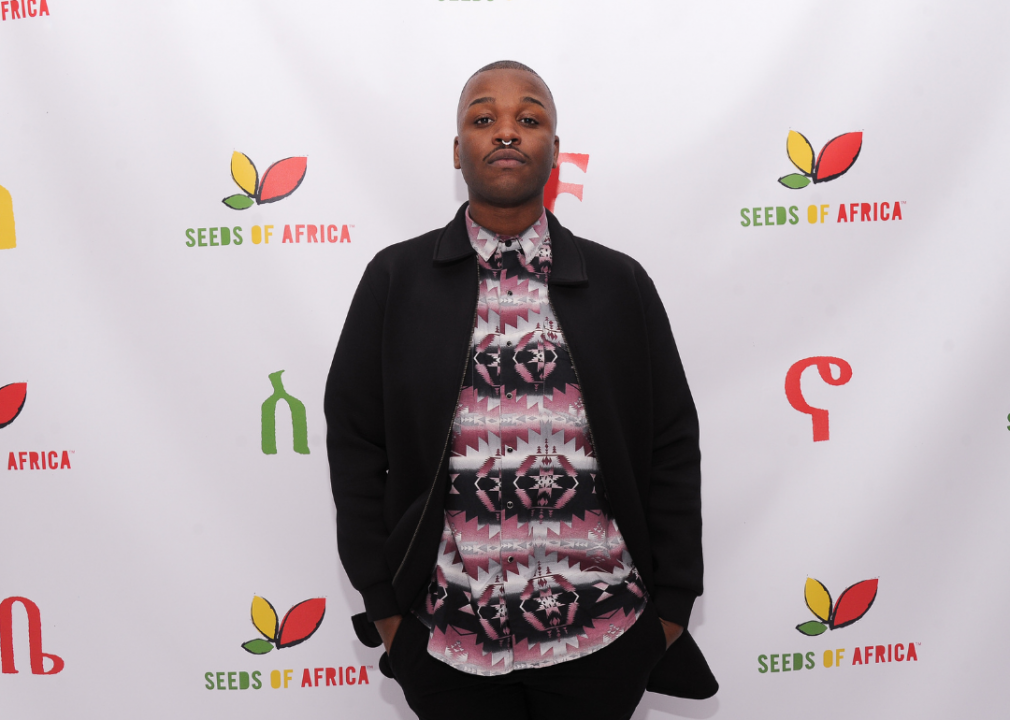
Rommel Demano // Getty Images
Cakes Da Killa: ‘Hedonism’ (2016)
Rashard Bradshaw, who goes by the stage name Cakes Da Killa, is part of a growing trend of queer artists breaking through in a more tolerant landscape in the hip-hop community. Bradshaw frequently and openly talks about his experience as a gay man, and his album “Hedonism,” which came after a number of mixtapes, is a reflection of that experience.
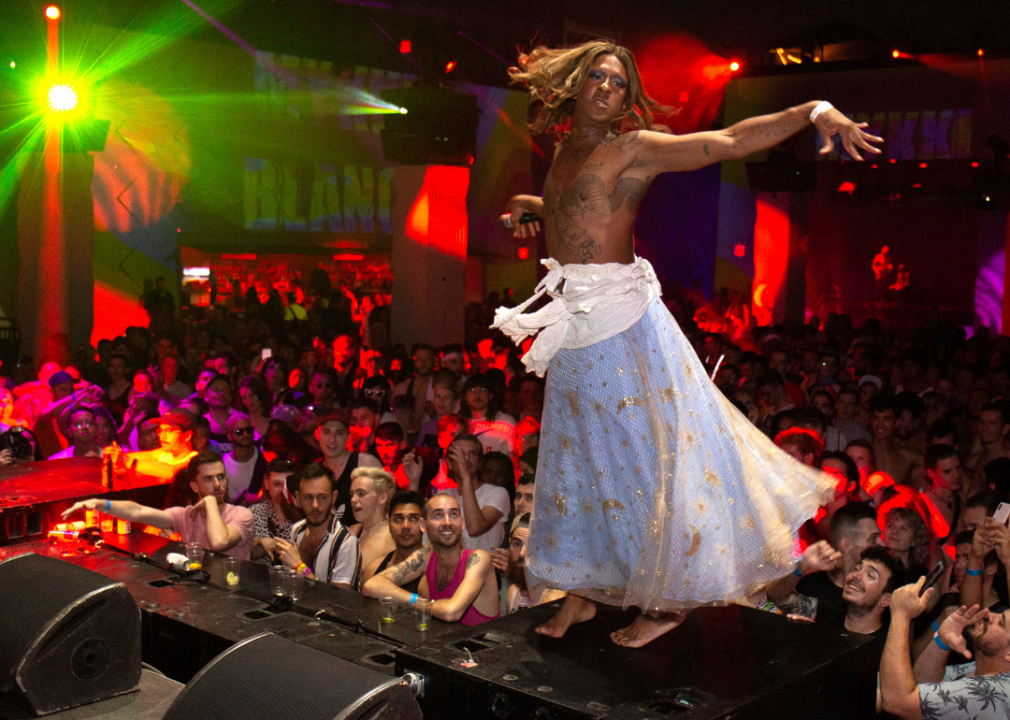
Santiago Felipe // Getty Images
Mykki Blanco: ‘Mykki’ (2016)
After releasing a few EPs, rapper and poet Mykki Blanco released her self-titled album, “Mykki,” influenced by the queercore subgenre and the riot grrrl movement. Mykki is also an activist and identifies as transgender, whose personal pronouns are she/they. Mykki Blanco is a persona to her in a sense, and their work reflects her shifting identity.
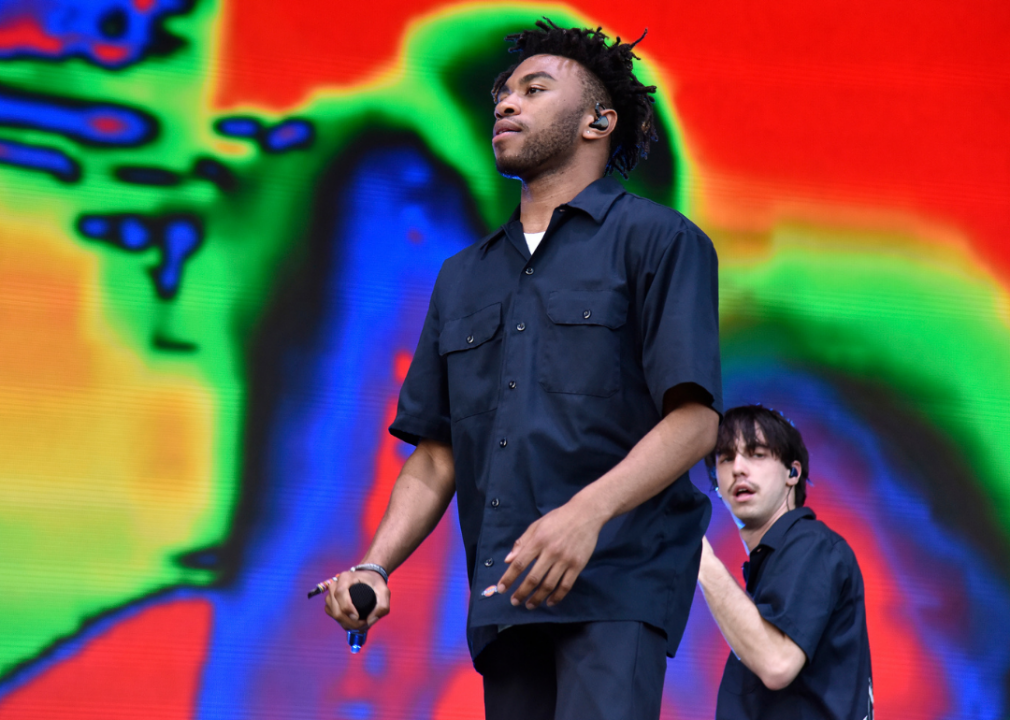
Tim Mosenfelder // Getty Images
Brockhampton: ‘Saturation’ (2017)
Hip-hop band Brockhampton is led by Kevin Abstract, who identifies as gay and often references his sexuality in his lyrics. Brockhampton’s album “Saturation” is the band’s first and also began a trilogy that concluded at the end of 2017. Initially called AliveSinceForever, Brockhampton came about after the release of Kevin Abstract’s “MTV1987” and after members recruited other musicians from a Kanye West fan forum.
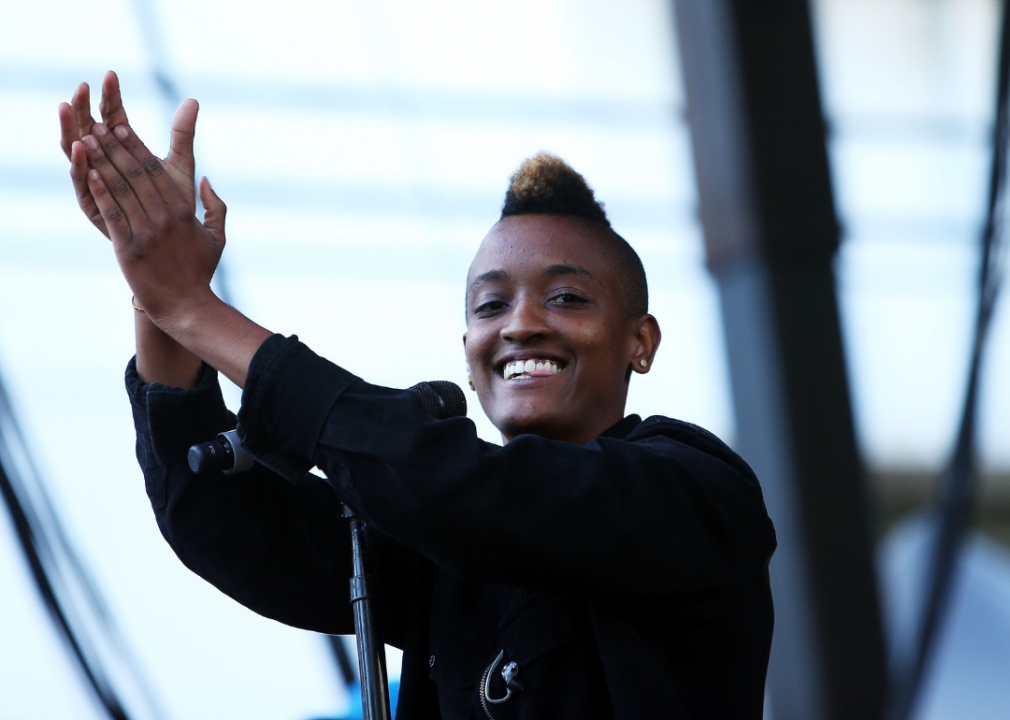
Graham Denholm // Getty Images
Syd: ‘Fin’ (2017)
Gaining visibility as a member of the Odd Future group, Syd would later found her own band, The Internet. The group would then go on hiatus so members could pursue solo projects and Syd would release her debut album, “Fin.” The album had a more pop-sounding feel to it compared to her previous work, but despite the departure, the album received critical acclaim.
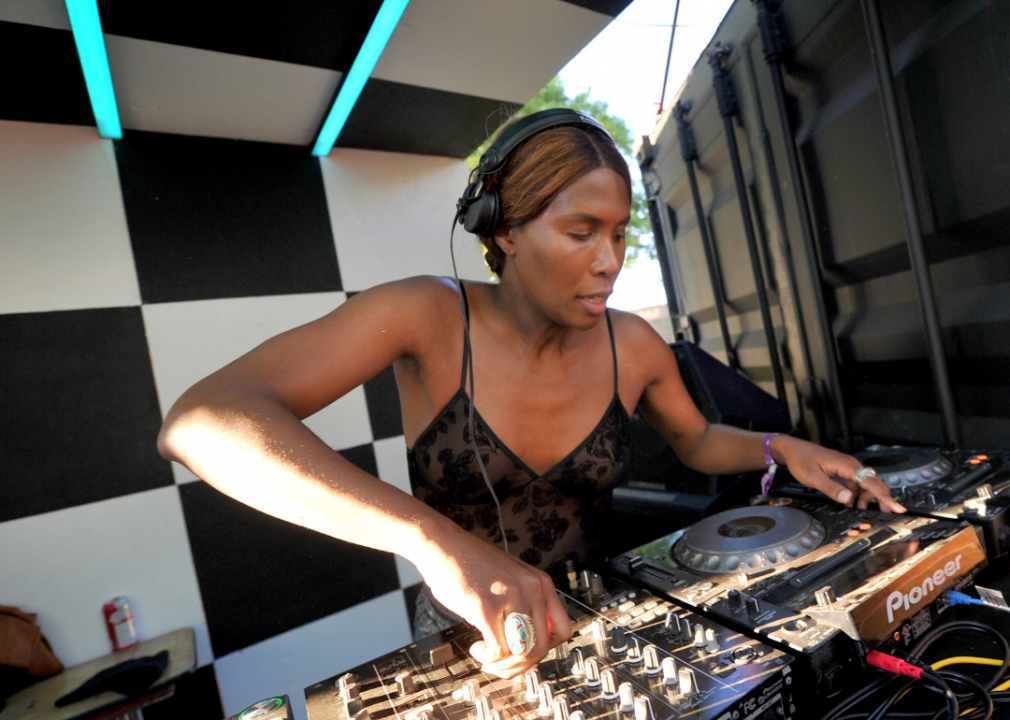
Ilya S. Savenok // Getty images
Honey Dijon: ‘The Best of Both Worlds’ (2017)
Artist and trans rights advocate Honey Dijon is openly transgender and often speaks about her experience as a Black trans woman DJ. Dijon’s debut album, “The Best of Both Worlds,” makes a push for a more inclusive nightlife in dance clubs and the like. Along with her activism and DJing, Dijon also attends art and fashion shows.
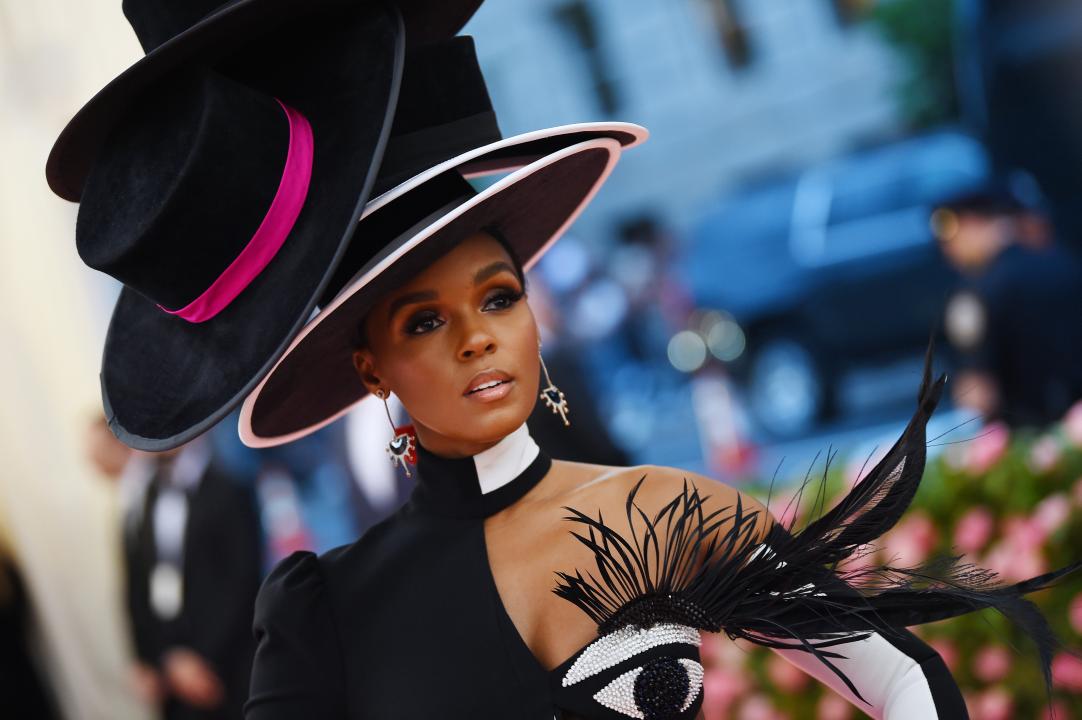
Dimitrios Kambouris // Getty Images
Janelle Monáe: ‘Dirty Computer’ (2018)
After completing her Metropolis narrative with her albums “The ArchAndroid” and “The Electric Lady,” nonbinary artist Janelle Monáe expanded her musical palette by departing from the psychedelic nature of her previous albums and delving into a more pop and R&B sound. “Dirty Computer” came after Monáe’s forays as a Hollywood actress, and the album explored what New York Times staff writer Jenna Wortham described as “the spectrum of sexual identities.” With a number of guest artists, “Dirty Computer” was praised for its range and production value and earned her a Best New Album nomination at the 2019 Grammy Awards.
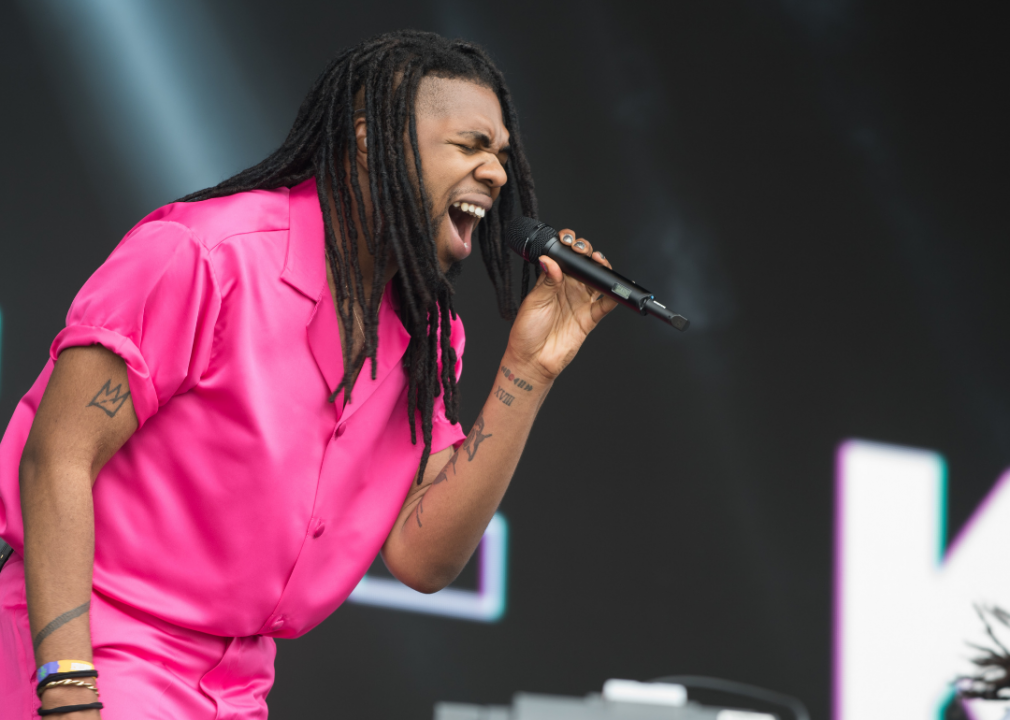
Joseph Okpako // Getty Images
MNEK: ‘Language’ (2018)
After sharing his music on Myspace, singer-songwriter MNEK eventually got his start as a professional songwriter in the mid-2010s before releasing an EP. He followed his EP “Small Talk” with his first full studio album, “Language.” Along with his usual work as a musical artist, MNEK also hosts songwriting camps for queer songwriters.
You may also like: 30 musicians with legendarily long careers
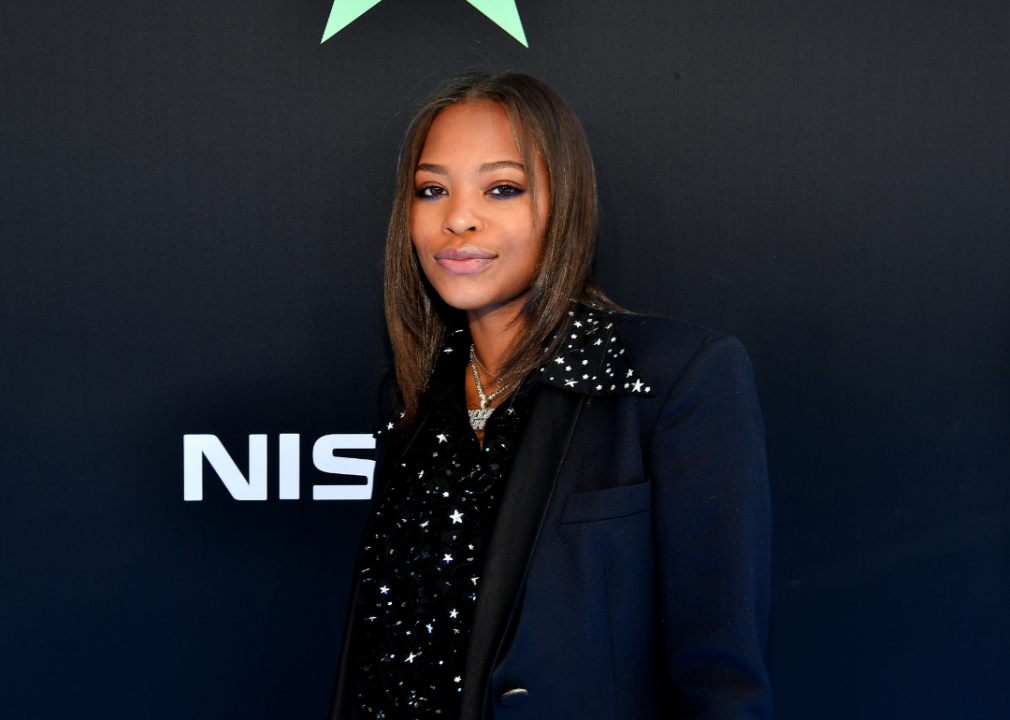
Paras Griffin // Getty Images
Kodie Shane: ‘Young Heartthrob’ (2018)
Kodie Shane began rapping at 14 and released a breakout single, “Sad,” in 2016 when she was 18. Shane later joined the rap group Sailing Team, but her first solo album, “Young Heartthrob,” became a showcase for her vocal talent and range. Shane identifies as queer and mentions herself as so in the album.
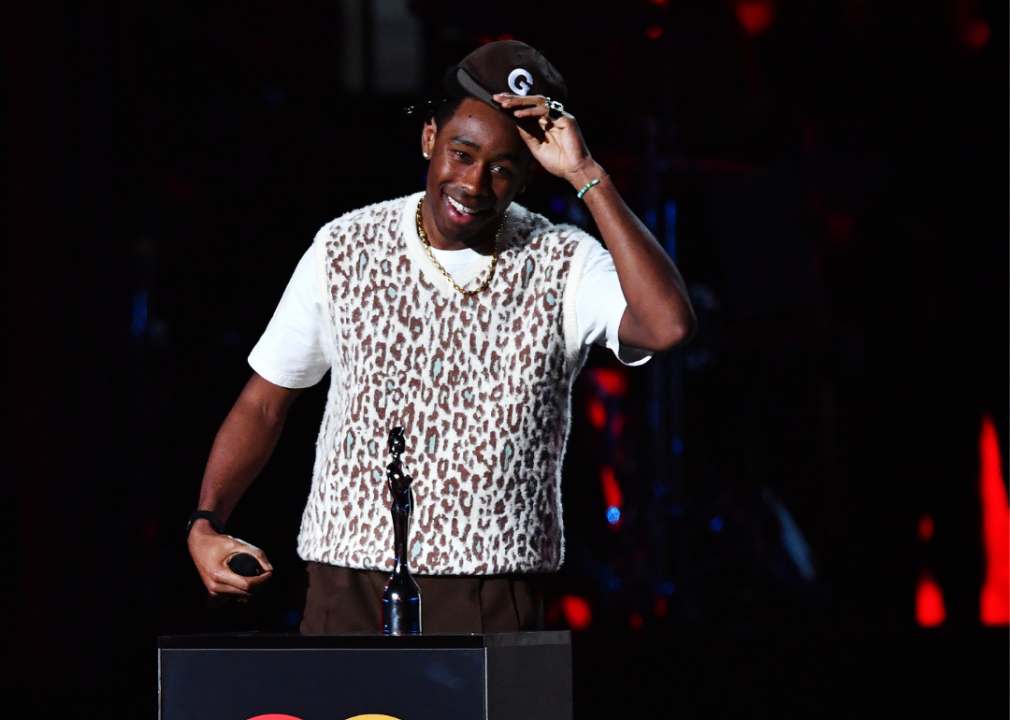
Gareth Cattermole // Getty Images
Tyler, the Creator: ‘Igor’ (2019)
Rapper Tyler, the Creator was initially known for being a part of the Odd Future group and releasing several solo mixtapes and albums before his fifth album “Igor.” It’s speculated that Tyler identifies as gay or possibly bisexual, and many of his songs, including those in “Igor,” stem from his personal experiences with love and heartbreak. “Igor” became a huge critical success and even took home Best Rap Album at the 2020 Grammys.
You may also like: Lyrics to 50 famously misunderstood songs, explained
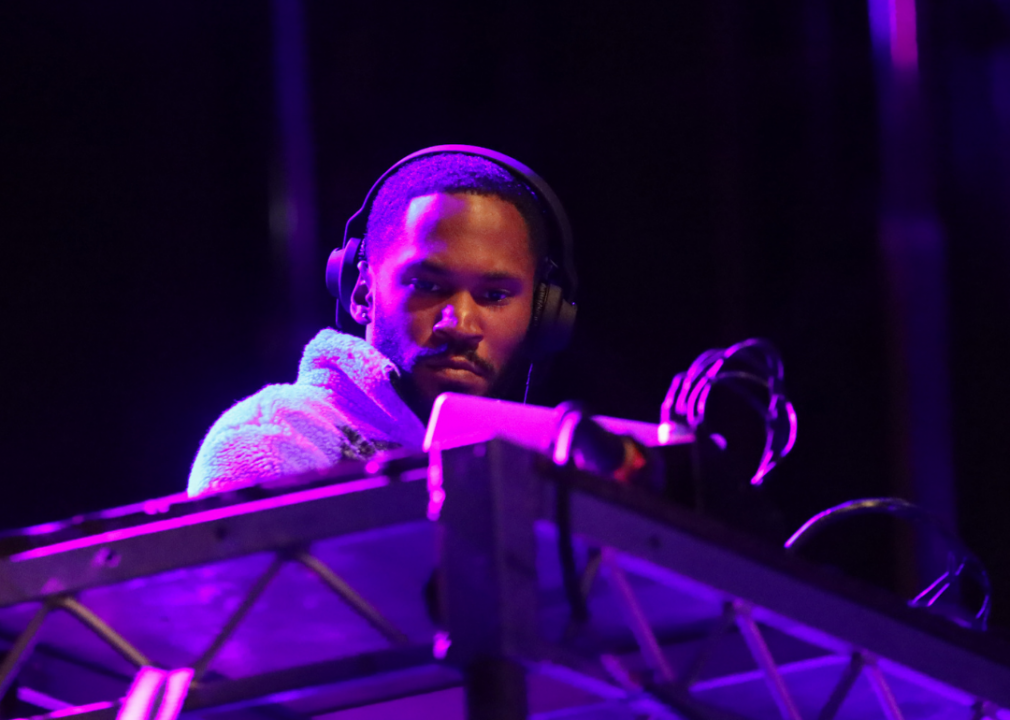
Dave Simpson // Getty Images
Kaytranada: ‘Bubba’ (2019)
The first solo studio album from producer and DJ Kaytranada was titled “99.9%,” which featured a number of collaborations and guest appearances; its follow-up album, “Bubba,” received a similar degree of success. Inheriting elements of several genres without committing to one, “Bubba” was highly acclaimed and even won a Grammy Award for Best Dance/Electronic Album.
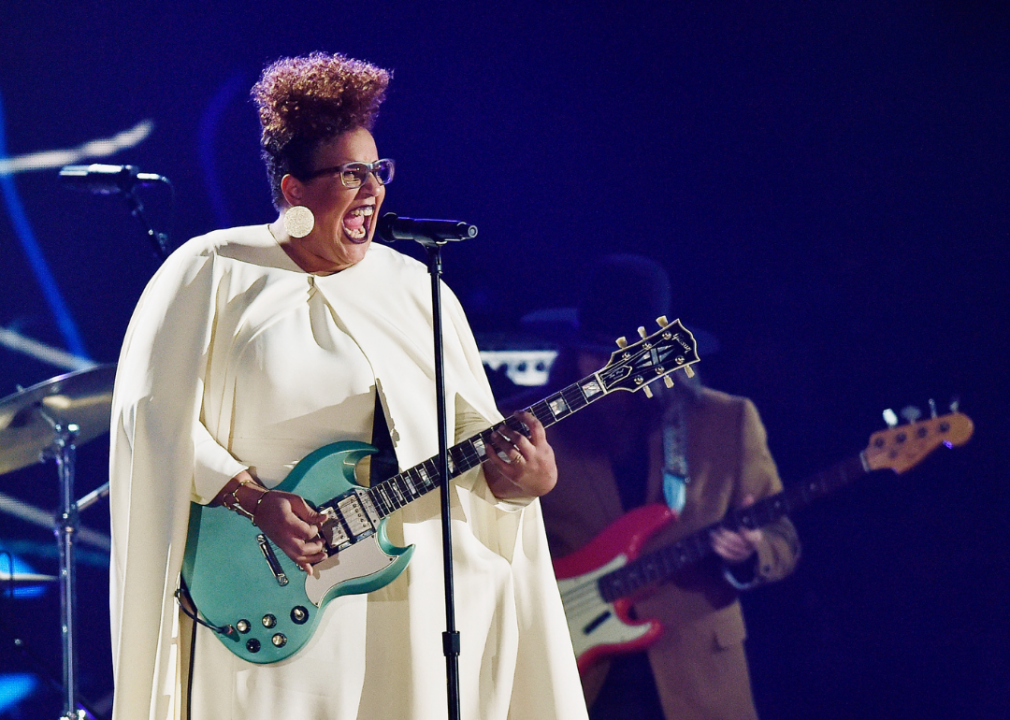
Kevork Djansezian // Getty Images
Brittany Howard: ‘Jaime’ (2019)
As the lead singer and guitarist for Alabama Shakes, Brittany Howard already had a well-established career for over a decade. After Alabama Shakes went on hiatus, Howard released her first album, “Jaime,” naming it after her late sister. This eclectic album also referenced her and her family’s struggles as interracial and the prejudice that they faced.
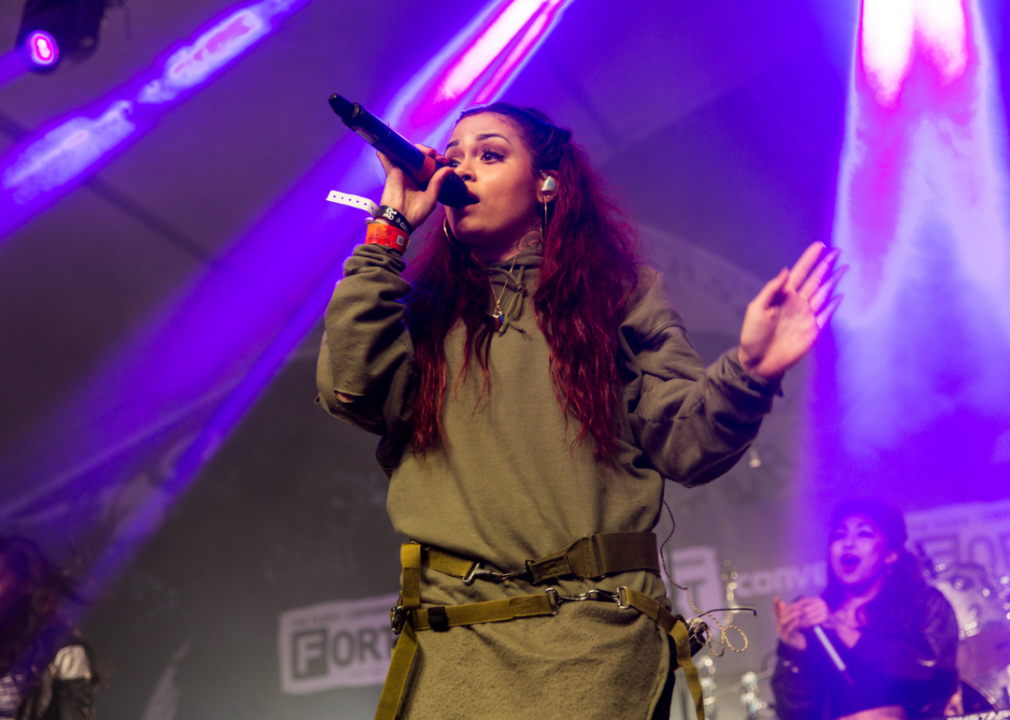
Roger Kisby // Getty Images
Kehlani: ‘It Was Good Until It Wasn’t’ (2020)
Breaking out from the group PopLyfe, which finished in fourth place on season six of “America’s Got Talent,” Kehlani—whose personal pronouns are she/they—embarked on a number of projects and collaborations on her own. Their second studio album, “It Was Good Until It Wasn’t,” debuted at #2 on the Billboard 200 chart. A sonically mature album full of intimate tracks, “It Was Good Until It Wasn’t” also sees Kehlani, who later came out as a lesbian in 2021, touching on her pansexuality in lyrics like “I’ve got bodies I want to take to the grave / I’ve got girls I want to give my last name.”
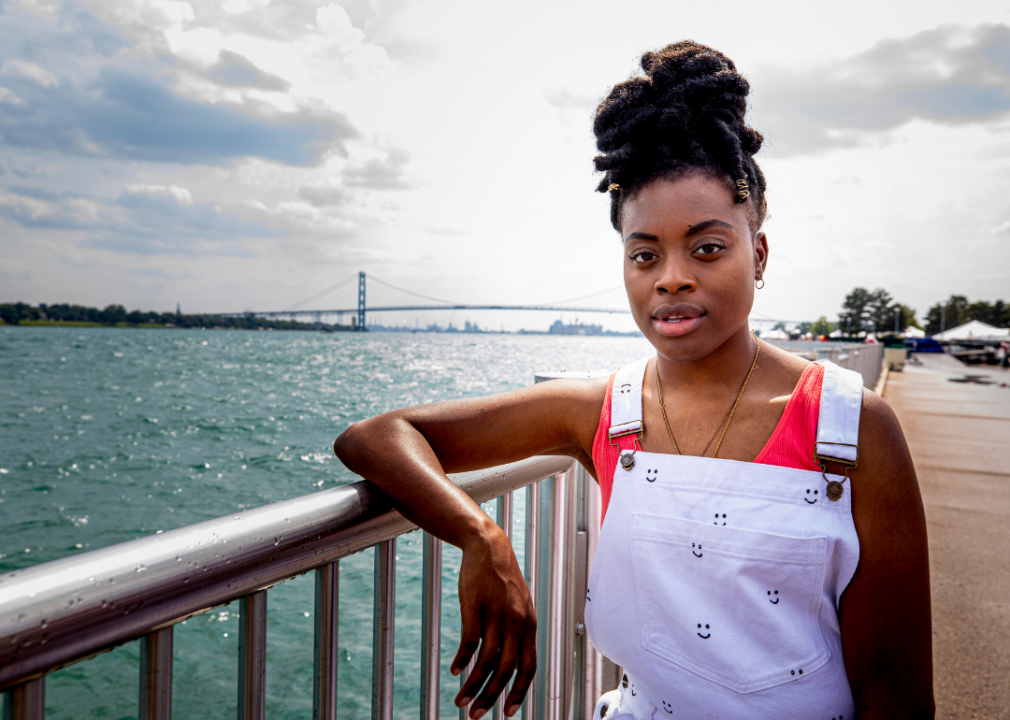
Scott Legato // Getty Images
Siena Liggins: ‘Ms. Out Tonight’ (2021)
Pop musician Siena Liggins often writes music about her own personal experiences, as evidenced by her debut single, “Flowerbomb.” Her first full album, “Ms. Out Tonight,” released in tandem with a visualizer, is themed around her relationships and sexual experiences with other women.
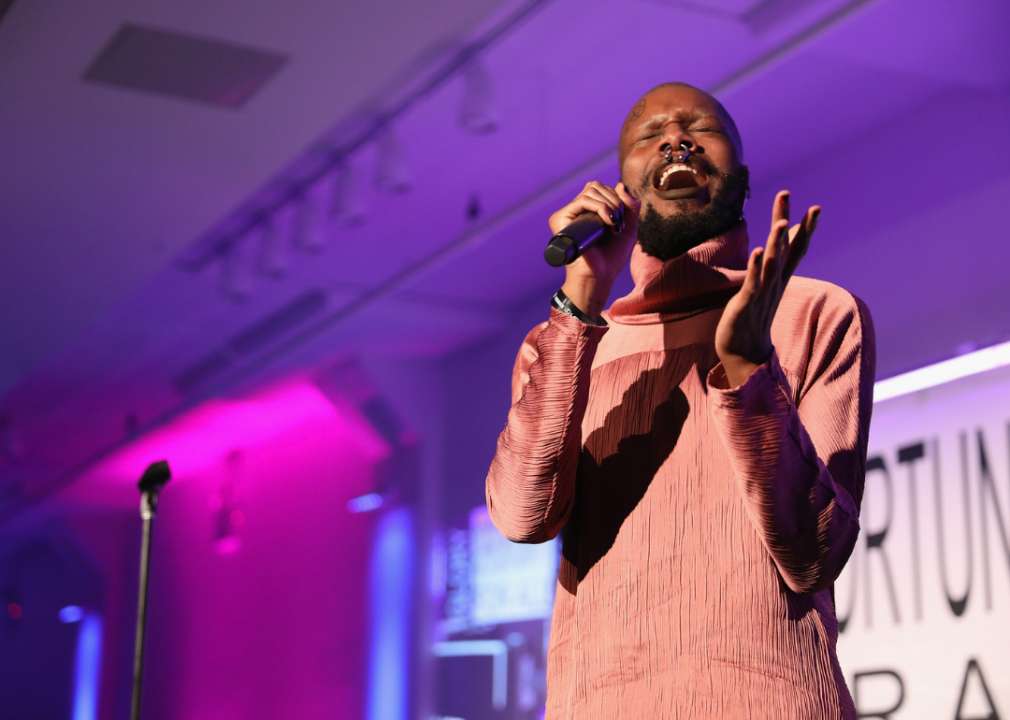
Monica Schipper // Getty Images
Serpentwithfeet: ‘Deacon’ (2021)
Josiah Wise is best known as Serpentwithfeet, an experimental musician primarily based out of the Brooklyn borough of New York City. Wise’s titled his first album “Soil,” and he would later go on to gain prominence for his collaborative work with rapper Ty Dolla $ign. His second album, “Deacon,” received universal acclaim for its depiction of Black gay love and its overall optimism.
You may also like: The best streaming services for sports in 2021
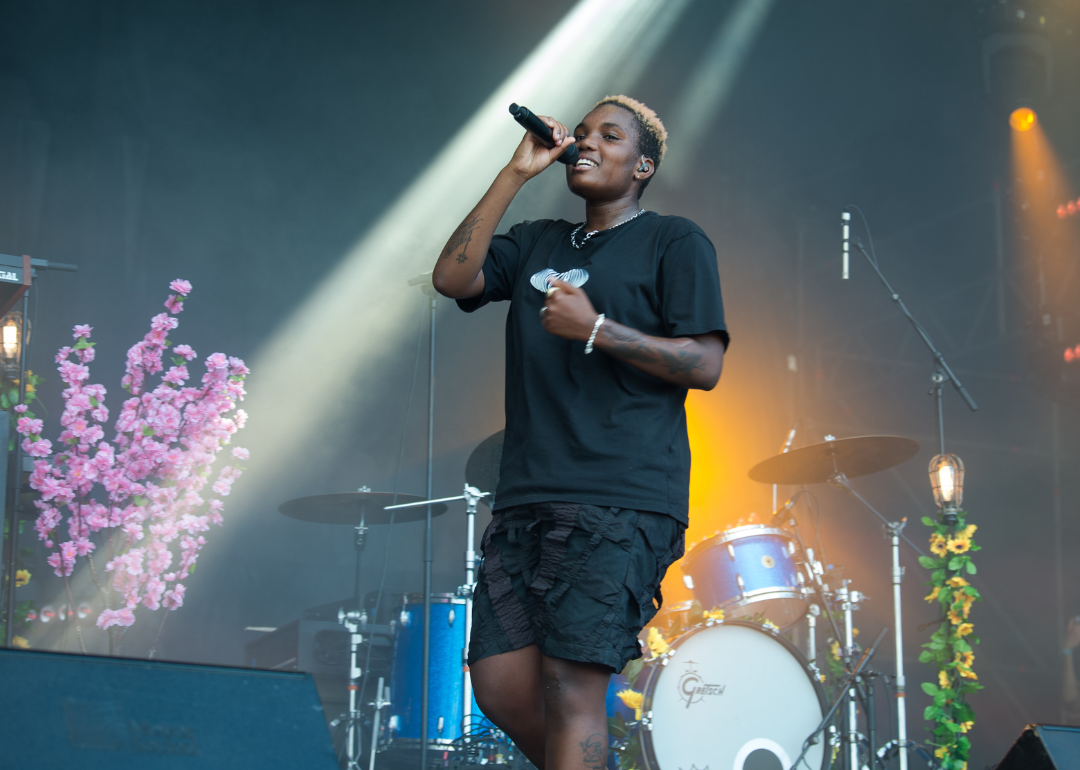
David Wolff-Patrick/Redferns via Getty Images
Arlo Parks: ‘Collapsed in Sunbeams’ (2021)
The fanfare bubbling around British singer-songwriter Arlo Parks’ critically acclaimed debut album, “Collapsed in Sunbeams,” gained more than enough steam to carry it across the pond and into the hearts of American millennials. With bruising melodies covering mental health and the pangs and joys of queer adolescent love, Parks told Billboard she’d mined “deep-rooted, sometimes traumatic places” to create the album during the COVID-19 pandemic. Her hard-won efforts and openness on the project paid off: The record won her the 2021 Mercury Prize and earned her a Best Alternative Music Album nomination at the 2022 Grammy Awards.
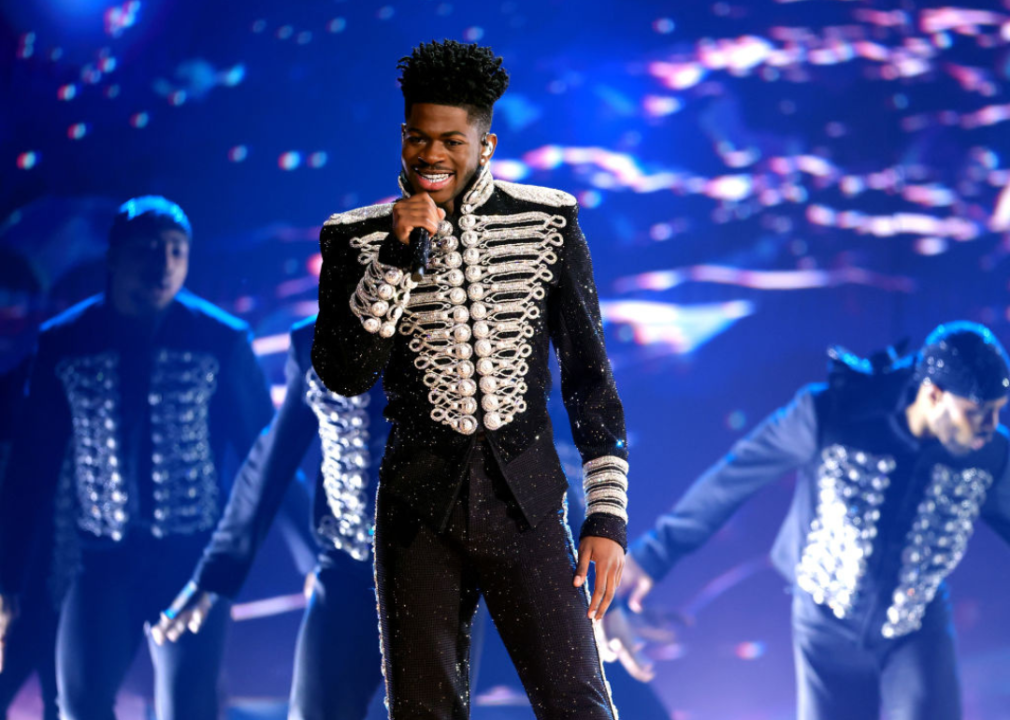
Rich Fury // Getty Images
Lil Nas X: ‘Montero’ (2021)
After eclipsing Mariah Carey’s long-held Billboard chart record with “Old Town Road,” Lil Nas X silenced one-hit-wonder naysayers and homophobes for good with the advent of his debut album, “Montero.” A playfully flamboyant yet heartfelt love letter to his once-closeted younger self, the pop star’s album dominated the charts during the summer of 2021 with not one but two same-gender-loving anthems, “Montero (Call Me by Your Name)” and “Industry Baby.” Detailing Lil Nas X’s struggles with love, sexuality, depression, and thoughts of suicide, the album garnered several nominations at the 2022 Grammys, including Album of the Year and Record of the Year.


